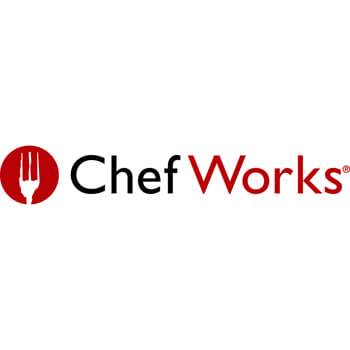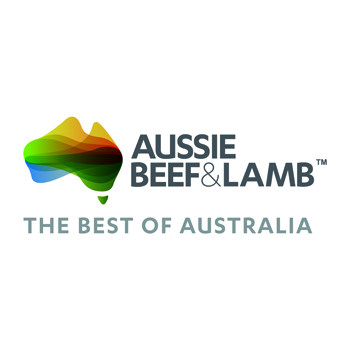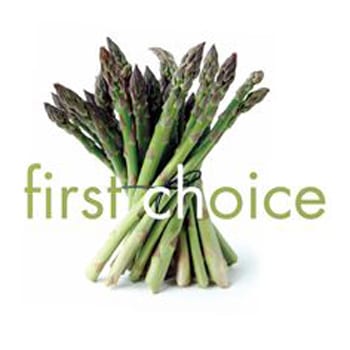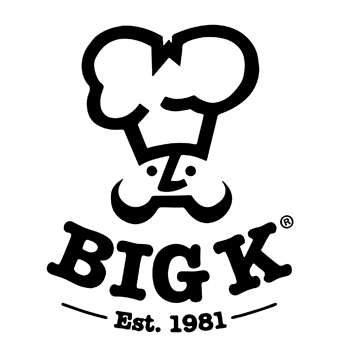North Yorkshire’s General Tarleton Pub with Rooms Set to Open Laster This Month
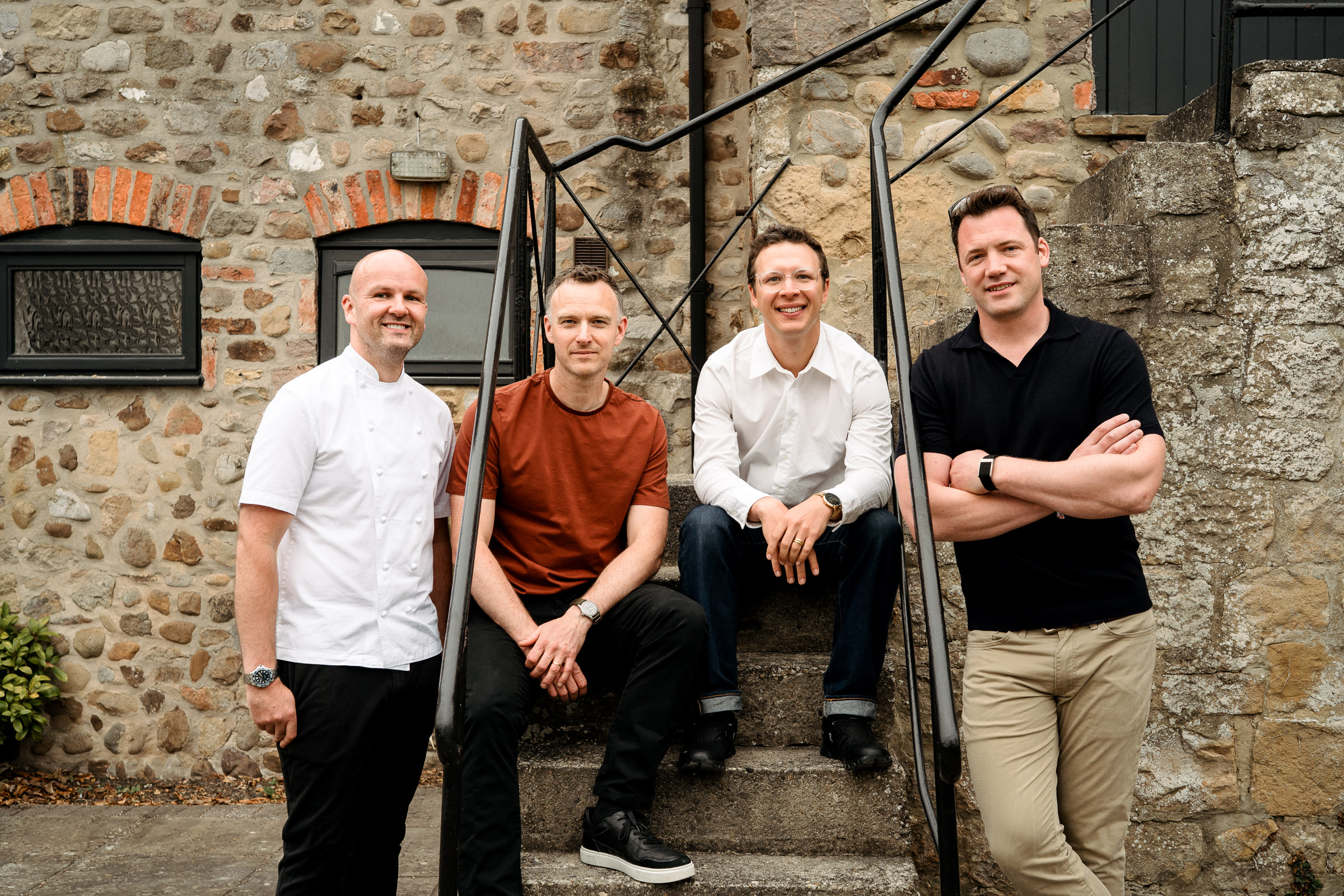 Jeopardy Hospitality is thrilled to announce that The General Tarleton will officially reopen its doors on 29 August 2025, marking the highly anticipated launch of the group’s very first project.
Jeopardy Hospitality is thrilled to announce that The General Tarleton will officially reopen its doors on 29 August 2025, marking the highly anticipated launch of the group’s very first project.
Following months of careful restoration, the 18th-century coaching inn will welcome guests to experience its historic charm, warm hospitality, and exceptional food – hallmarks of the Jeopardy Hospitality vision brought to life by restaurateur Tommy Banks and his partners Matthew Lockwood, James Banks, and Neil Armstrong.
Situated in the village of Ferrensby, just outside Harrogate and the picturesque market town of Knaresborough, the inn has long held a place in the hearts of locals and visitors alike. The newly restored building will reopen as an eight-bedroom pub with a private dining space, expansive bar and beer garden.
Sam Orbaum, originally from Yorkshire, has joined Jeopardy Hospitality Group as General Manager. He brings valuable experience from his previous role as Head of People at the Woodhead Restaurant Group, which operates acclaimed venues such as Portland, Clipstone, and the Quality Chop House. In his new position, Sam will oversee front-of-house operations at the newly revitalised pub with rooms, as well as further Jeopardy Hospitality ventures.
Joining him is Aled Williams, who has been appointed Executive Chef. Aled brings a wealth of culinary expertise, having spent the past nine years as Head of Food and Innovation at TRUEfoods – renowned for its premium stocks, sauces, and intimate 10-seat chefsTABLE. Aled was also previously Head Chef at Michelin-starred Northcote, and has represented Wales on the BBC’s Great British Menu in 2010 and is a recipient of the prestigious Gordon Ramsay Scholarship.
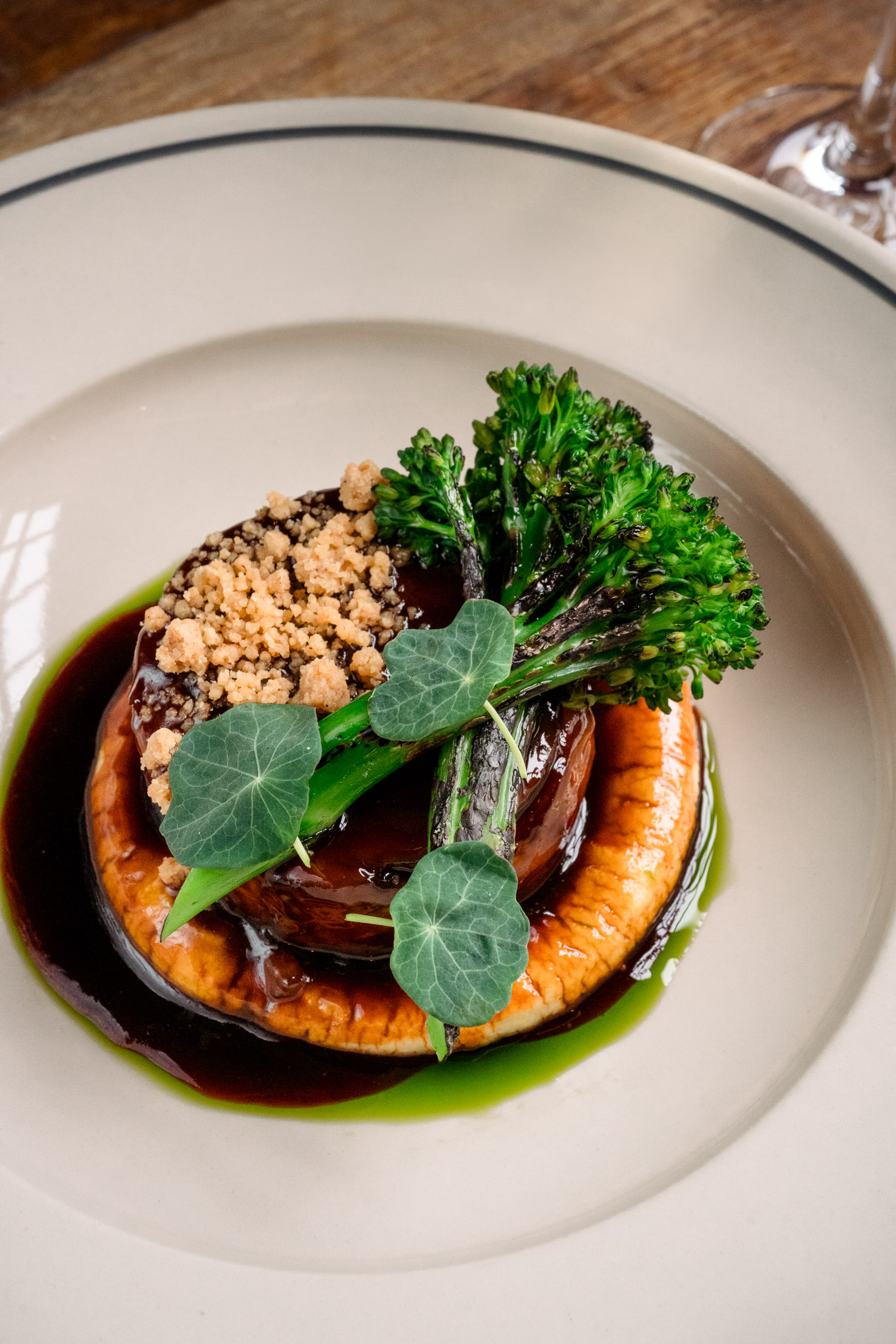 The menu blends comfort and craft, rooted in hearty British pub classics and celebrating the best of British produce. Snacks and starters range from pork crackling with apple butter and a Woodland pork Scotch egg with brown sauce, to Old Winchester and leek croquettes served with a chive emulsion. These sit alongside a rich smoked haddock chowder with leek and sweetcorn and smoked cod with smoked onion and cockle popcorn. Regularly changing specials will reflect the seasons featuring dishes such as roast king scallop with tomato gazpacho and lardo.
The menu blends comfort and craft, rooted in hearty British pub classics and celebrating the best of British produce. Snacks and starters range from pork crackling with apple butter and a Woodland pork Scotch egg with brown sauce, to Old Winchester and leek croquettes served with a chive emulsion. These sit alongside a rich smoked haddock chowder with leek and sweetcorn and smoked cod with smoked onion and cockle popcorn. Regularly changing specials will reflect the seasons featuring dishes such as roast king scallop with tomato gazpacho and lardo.
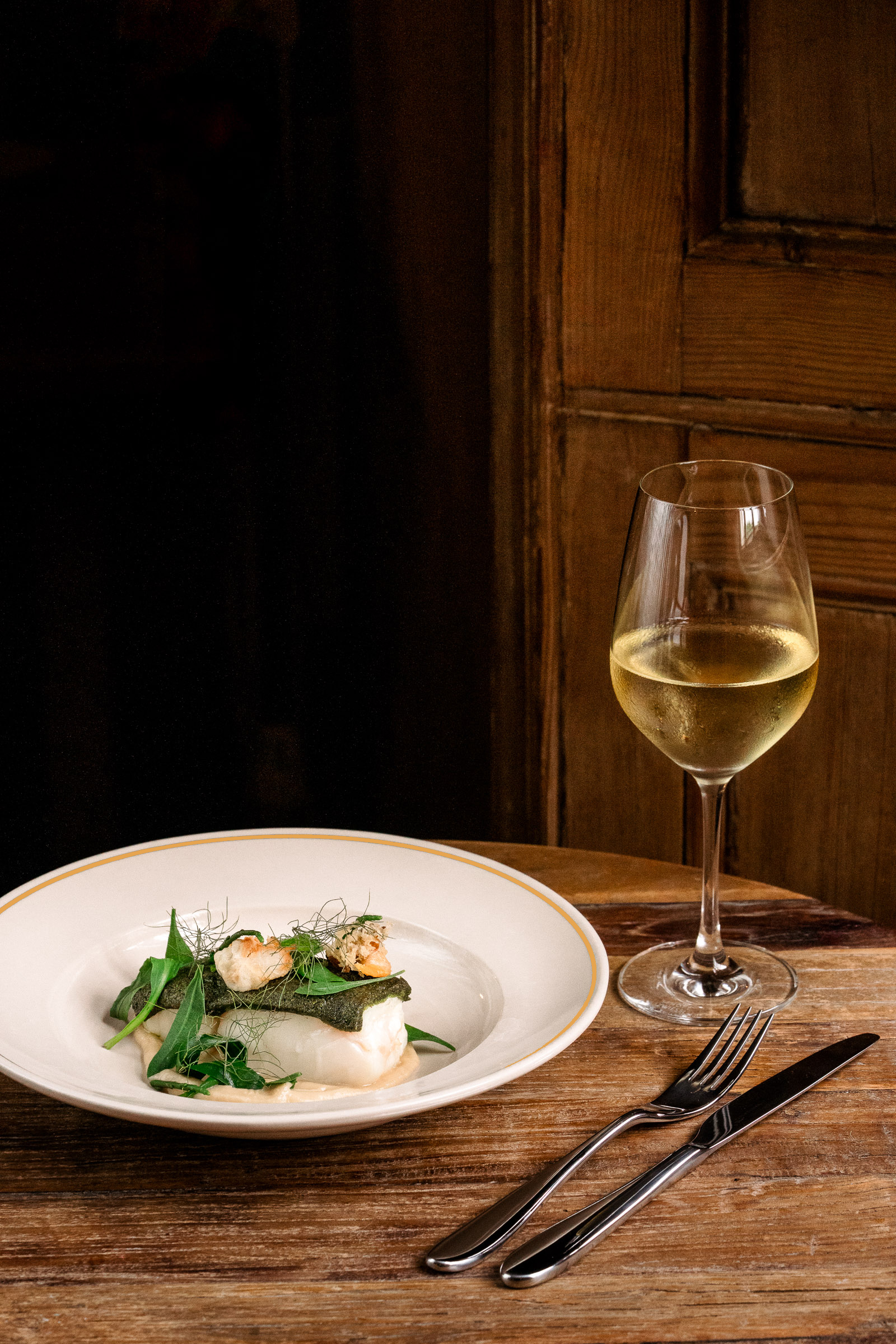 Mains will include favourites such as Steak and Guinness Pie with baked potato mash, Savoy cabbage and rich gravy, alongside the signature GT Burger, made with Dexter beef from the Banks family farm, Red Sparkenhoe cheese and house pickles. The Grill section offers a selection of classic dishes, including a Barnsley chop, beef fillet and pork cutlet options, as well as a Côte de Boeuf for two – all served with triple-cooked chips, a wedge salad and homemade accompaniments. On Sundays, a traditional roast will be available featuring beef, pork, or Lion’s Mane mushroom, served alongside all the classic trimmings. A set menu will be available Monday to Friday evenings, with two courses for £26 or three courses for £30. The same menu is available at lunch on Thursday and Friday.
Mains will include favourites such as Steak and Guinness Pie with baked potato mash, Savoy cabbage and rich gravy, alongside the signature GT Burger, made with Dexter beef from the Banks family farm, Red Sparkenhoe cheese and house pickles. The Grill section offers a selection of classic dishes, including a Barnsley chop, beef fillet and pork cutlet options, as well as a Côte de Boeuf for two – all served with triple-cooked chips, a wedge salad and homemade accompaniments. On Sundays, a traditional roast will be available featuring beef, pork, or Lion’s Mane mushroom, served alongside all the classic trimmings. A set menu will be available Monday to Friday evenings, with two courses for £26 or three courses for £30. The same menu is available at lunch on Thursday and Friday.
Desserts at The General Tarleton are both nostalgic and elegant, ranging from a playful Tiramisu Vienetta to a delicate Buttermilk Panna Cotta with Elderflower and Lemon Verbena. A British cheese board from The Courtyard Dairy rounds off the menu with regional favourites like Stichelton and Tunworth.
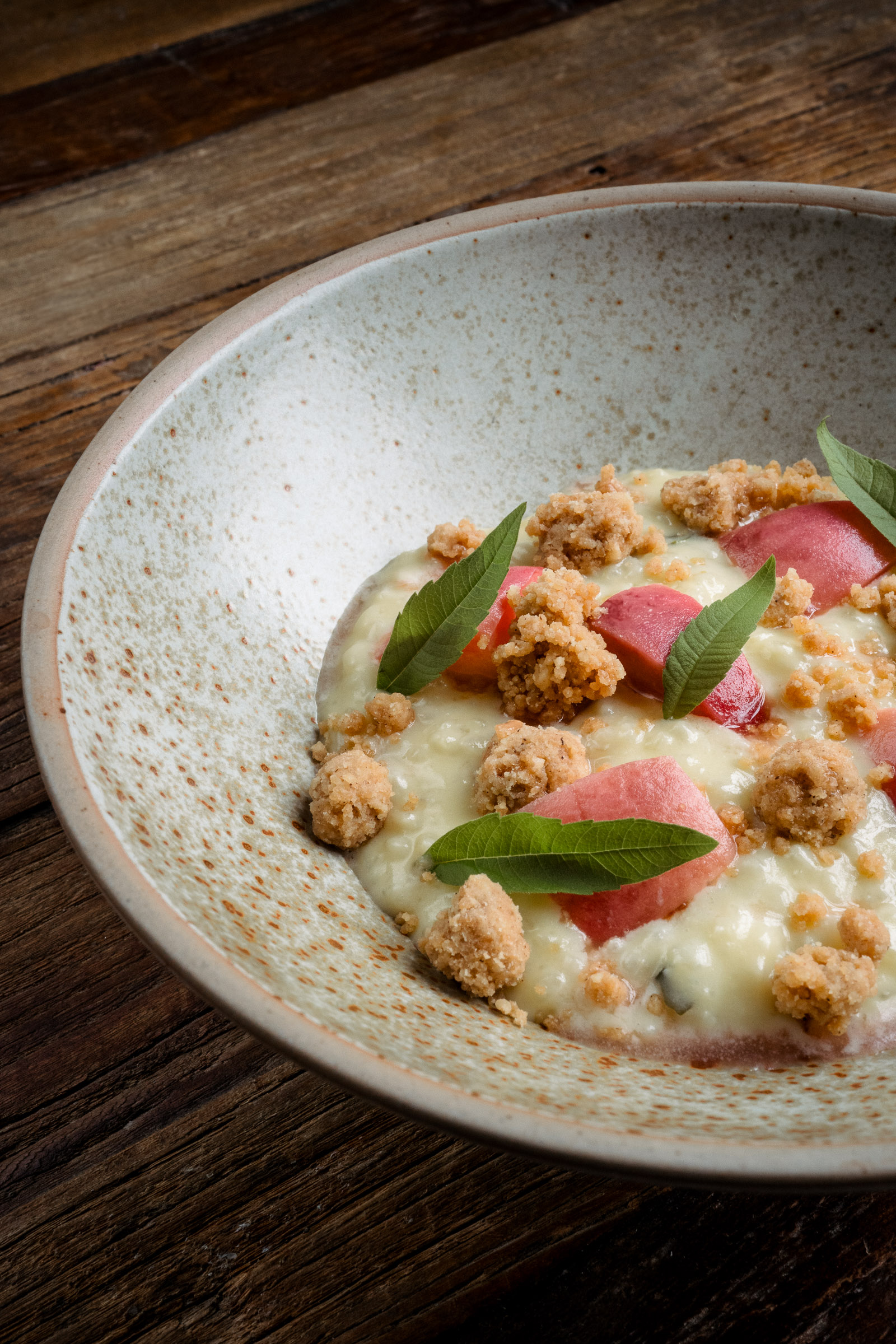 Curated by James Banks, the 40-strong wine list brings together classic regions, emerging producers and lesser-seen bottles from across Europe and beyond. Expect Cremant from the Jura, Sancerre from Vacheron, and standout pours like Puligny-Montrachet from Jacques Carillon and Barbera from Vallana, alongside more offbeat picks such as a Moroccan Syrah and a Tannat from Uruguay. English wines also feature prominently, with bottles from Wiston and Gusbourne. Over 20 wines are available by the glass, with prices starting at £6 and bottles from £29, with a core range between £40–£70. The list also includes Banks Brothers canned wines, perfect for garden drinking.
Curated by James Banks, the 40-strong wine list brings together classic regions, emerging producers and lesser-seen bottles from across Europe and beyond. Expect Cremant from the Jura, Sancerre from Vacheron, and standout pours like Puligny-Montrachet from Jacques Carillon and Barbera from Vallana, alongside more offbeat picks such as a Moroccan Syrah and a Tannat from Uruguay. English wines also feature prominently, with bottles from Wiston and Gusbourne. Over 20 wines are available by the glass, with prices starting at £6 and bottles from £29, with a core range between £40–£70. The list also includes Banks Brothers canned wines, perfect for garden drinking.
The drinks list also features timeless cocktails with seasonal twists – including a Rhubarb Negroni, Barrel-Aged Old Fashioned and a classic Tom Collins – as well as a selection of local ales. A standout is the new Gose-style beer created in collaboration with Knaresborough’s Turning Point Brewery, brewed with foraged botanicals and ingredients grown on the Banks family farm in Oldstead – a refreshing reflection of the surrounding landscape.
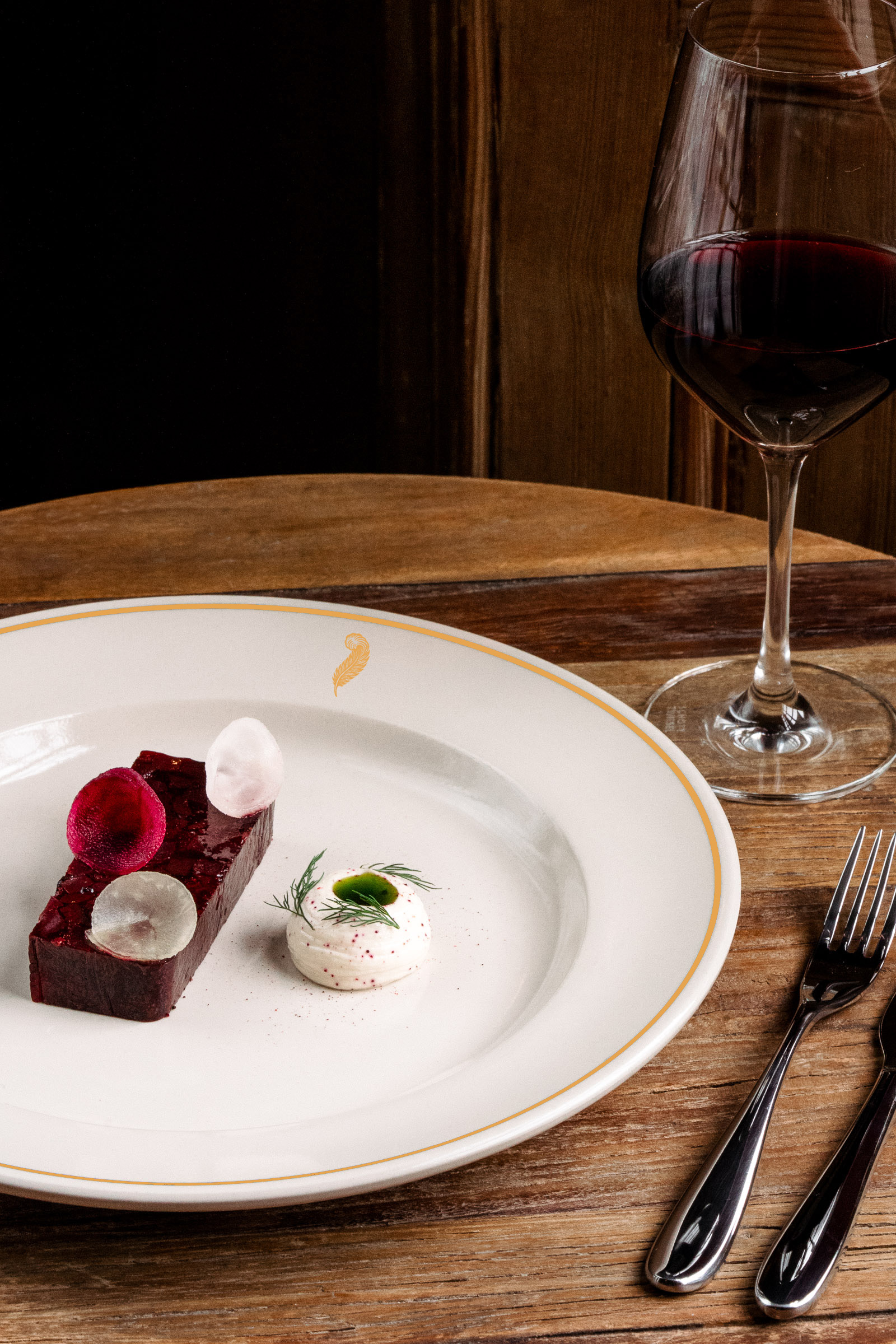 The interiors have been thoughtfully designed by Abi Hancock, a Yorkshire-based designer whose previous work includes the refurbishment of North London’s Perilla restaurant, to reflect the building’s rural surroundings. Using a palette of earthy tones and natural materials that firmly root the space in its landscape, original elements such as exposed timber beams, stone flooring, and an open fireplace have been preserved and celebrated. These are harmoniously paired with soft leathers, warm brass accents, and natural oak joinery to evoke a sense of understated elegance.
The interiors have been thoughtfully designed by Abi Hancock, a Yorkshire-based designer whose previous work includes the refurbishment of North London’s Perilla restaurant, to reflect the building’s rural surroundings. Using a palette of earthy tones and natural materials that firmly root the space in its landscape, original elements such as exposed timber beams, stone flooring, and an open fireplace have been preserved and celebrated. These are harmoniously paired with soft leathers, warm brass accents, and natural oak joinery to evoke a sense of understated elegance.
From the lantern-lit conservatory and barn-style dining room to the bar’s cosy, tucked away booths and banquettes – perfect for long lunches or celebratory dinners. Upstairs, the eight bedrooms offer a home-away-from-home feel, enhancing the welcoming environment deeply rooted in the building’s history and local community.
Jeopardy Hospitality was formed to breathe new life into unique pub sites across the UK, each with its own story to tell. By combining culinary excellence with the team’s dedication to hospitality, each venue aims to create jobs, attract tourism and become a cornerstone of local life once more.
The General Tarleton’s opening is the first step in Jeopardy Hospitality’s ambitious vision. It also marks a new chapter alongside the ongoing success of the Tommy Banks Group, which includes The Black Swan at Oldstead, Roots York, The Abbey Inn at Byland, and Made In Oldstead.
Booking lines for The General Tarelton are now open. www.generaltarletonferrensby.co.uk
Vraic in Guernsey is Now Open
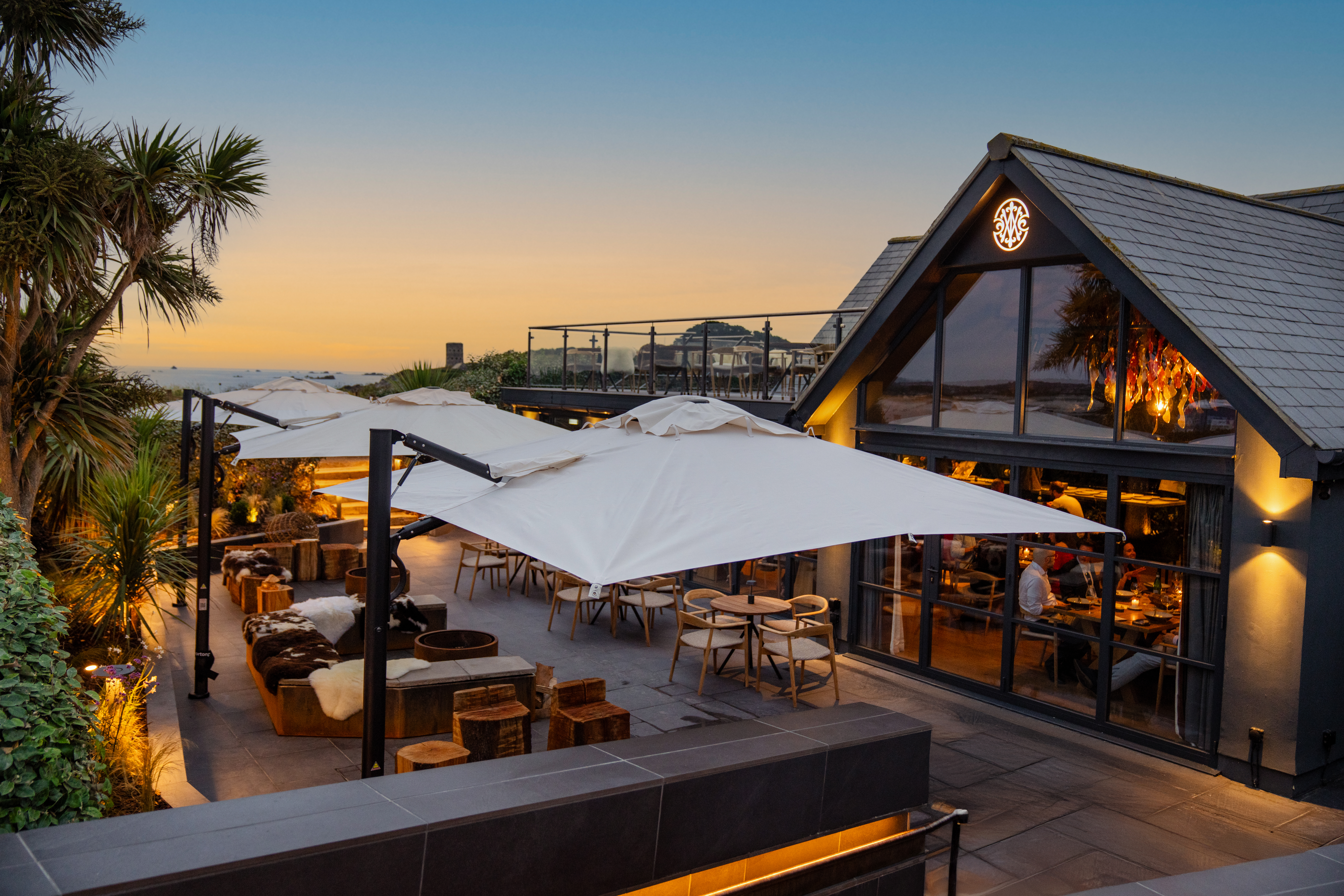 Chef Nathan Davies is delighted to announce that Vraic, his new 24-cover restaurant overlooking Chouet Bay in Guernsey, is now officially open. Named after the Guernésiais word for seaweed, Vraic champions the island’s rich and bountiful produce, with a particular focus on local fish, shellfish and the diverse seaweeds that flourish along its rugged coastline.
Chef Nathan Davies is delighted to announce that Vraic, his new 24-cover restaurant overlooking Chouet Bay in Guernsey, is now officially open. Named after the Guernésiais word for seaweed, Vraic champions the island’s rich and bountiful produce, with a particular focus on local fish, shellfish and the diverse seaweeds that flourish along its rugged coastline.
Nathan, the visionary behind SY23 in Aberystwyth, which earned a Michelin star and was crowned ‘Opening of the Year’ in the 2022 Michelin Guide, brings his passion for fire-led cooking and foraging to this new venture. His achievements at SY23, including recognition in the Good Food Guide’s Top 20 Most Exciting Restaurants, highlight his relentless pursuit of creativity and excellence. At Vraic, Nathan is joined by his wife and Operations Manager, Hollie Davies, former SY23 colleagues, including Senior Sous Chef Kuba Biskup, and new local team members from Guernsey.
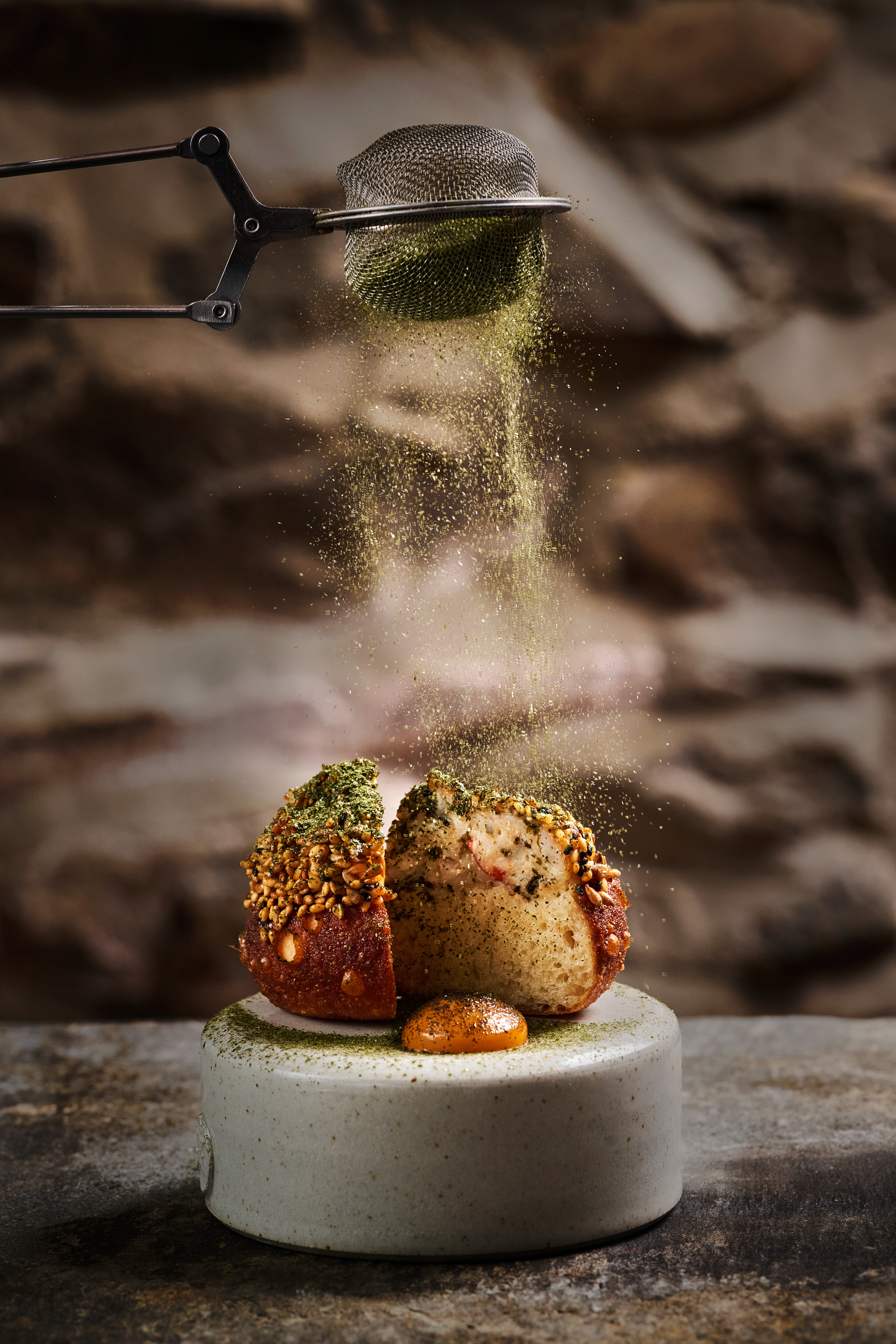 At the heart of the open kitchen is a Basque-inspired grill, where Nathan and his team craft a seasonal 10–12 course tasting menu (from £145). The menu is served in single sittings, at 1pm for lunch and 7:30pm for dinner. Guests are invited to enjoy pre-or post-dinner drinks either on the front terrace complete with fire pits and sheepskin rugs, or upstairs, where they can take in panoramic views of Guernsey’s Chouet Bay. Every element of the experience, including a carefully curated soundtrack that gradually builds in tempo through the evening, is crafted to complement the rhythm of the service and the menu.
At the heart of the open kitchen is a Basque-inspired grill, where Nathan and his team craft a seasonal 10–12 course tasting menu (from £145). The menu is served in single sittings, at 1pm for lunch and 7:30pm for dinner. Guests are invited to enjoy pre-or post-dinner drinks either on the front terrace complete with fire pits and sheepskin rugs, or upstairs, where they can take in panoramic views of Guernsey’s Chouet Bay. Every element of the experience, including a carefully curated soundtrack that gradually builds in tempo through the evening, is crafted to complement the rhythm of the service and the menu.
Nathan, his wife Hollie, and their family relocated to Guernsey to create a dining experience connected to the island’s landscape. From utilising local producers, such as Surf & Turf, suppliers of premium shellfish and fish, to vegetables sourced from The Soil, Guernsey’s regenerative farm, the menu celebrates exceptional local goods, while subtly weaving in inspiration from Nathan’s Welsh heritage. A signature example is the lightly grilled local lobster tail, paired with seaweed harvested from the same bay. The open-fire grill lends a smokiness to the lobster’s natural sweetness, enriched by a brown butter sauce made with Guernsey dairy, with the seaweed bringing a subtle umami note. This thoughtful approach extends to even the most familiar dishes. Strawberries and Cream is reimagined with house-cultured sour cream, fresh berries, elderflower oil, pickled elderflowers, and a crown of meringues – each element honouring the season.
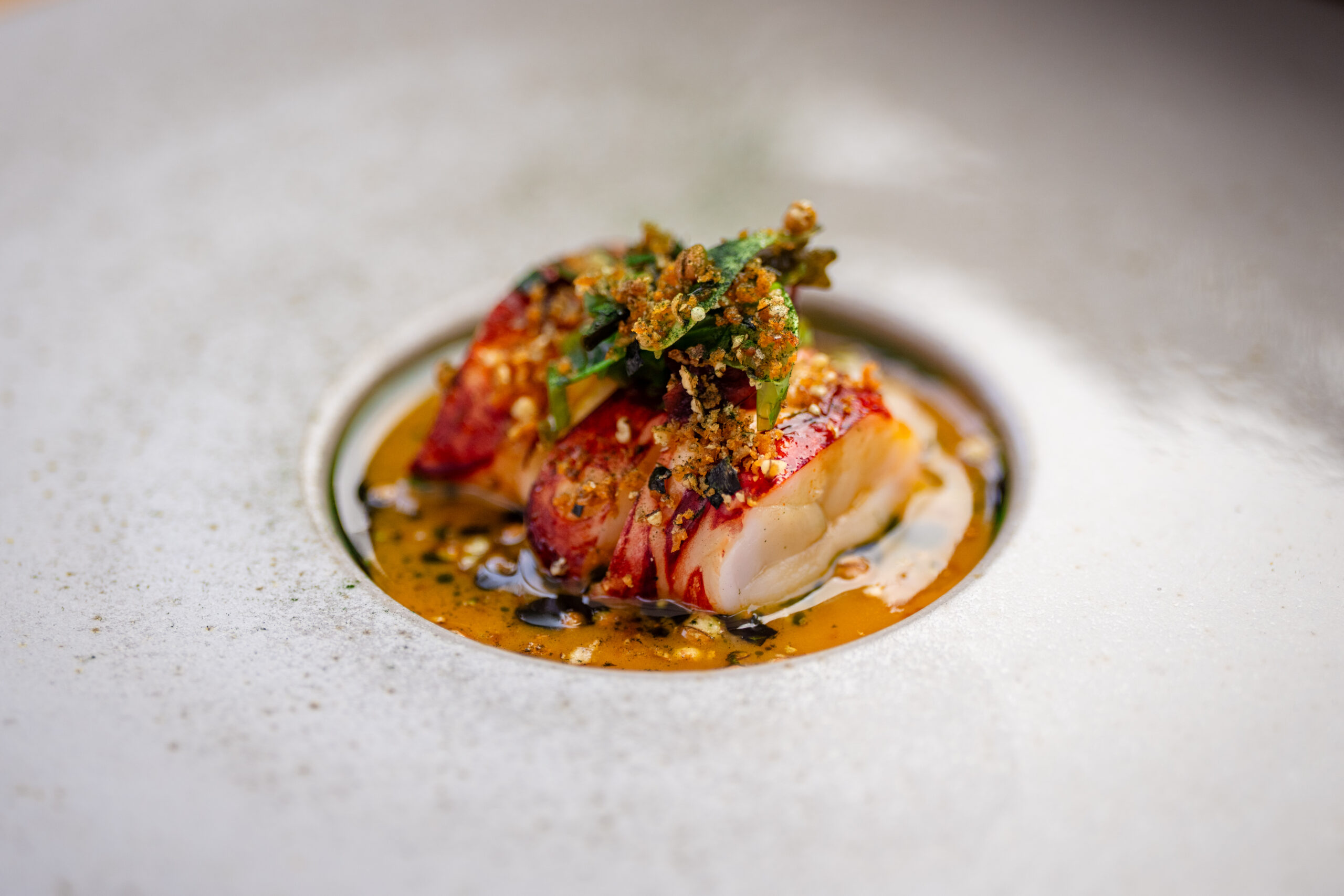 The experience can be complemented by an optional wine pairing (£95) or guests can choose from a carefully curated, low-intervention wine list – available by the bottle (from £50) or by the glass (from £9). The cocktail offering includes refined takes on the classics alongside original creations such as the Seaweed Martini, made with locally harvested kelp. For non-alcoholic choices, island-brewed kombucha, Guernsey Seaweed teas, and botanical elixirs are all available.
The experience can be complemented by an optional wine pairing (£95) or guests can choose from a carefully curated, low-intervention wine list – available by the bottle (from £50) or by the glass (from £9). The cocktail offering includes refined takes on the classics alongside original creations such as the Seaweed Martini, made with locally harvested kelp. For non-alcoholic choices, island-brewed kombucha, Guernsey Seaweed teas, and botanical elixirs are all available.
Vraic’s interiors reflect the restaurant’s connection to nature, creating a space that feels intrinsically part of its coastal setting. Charred timber cladding lines the walls, while a bespoke wooden floor traces the organic growth pattern of a tree. Local heritage is woven throughout, quite literally, with traditional fishing baskets reimagined as service pieces. British deer hide leather adds warmth and texture, while granite signage, sourced from a nearby quarry, anchors the building in its landscape. A custom chandelier takes inspiration from Guernsey’s shoreline seaweed, with amber, blue and turquoise chards of glass that subtly shift in the light.
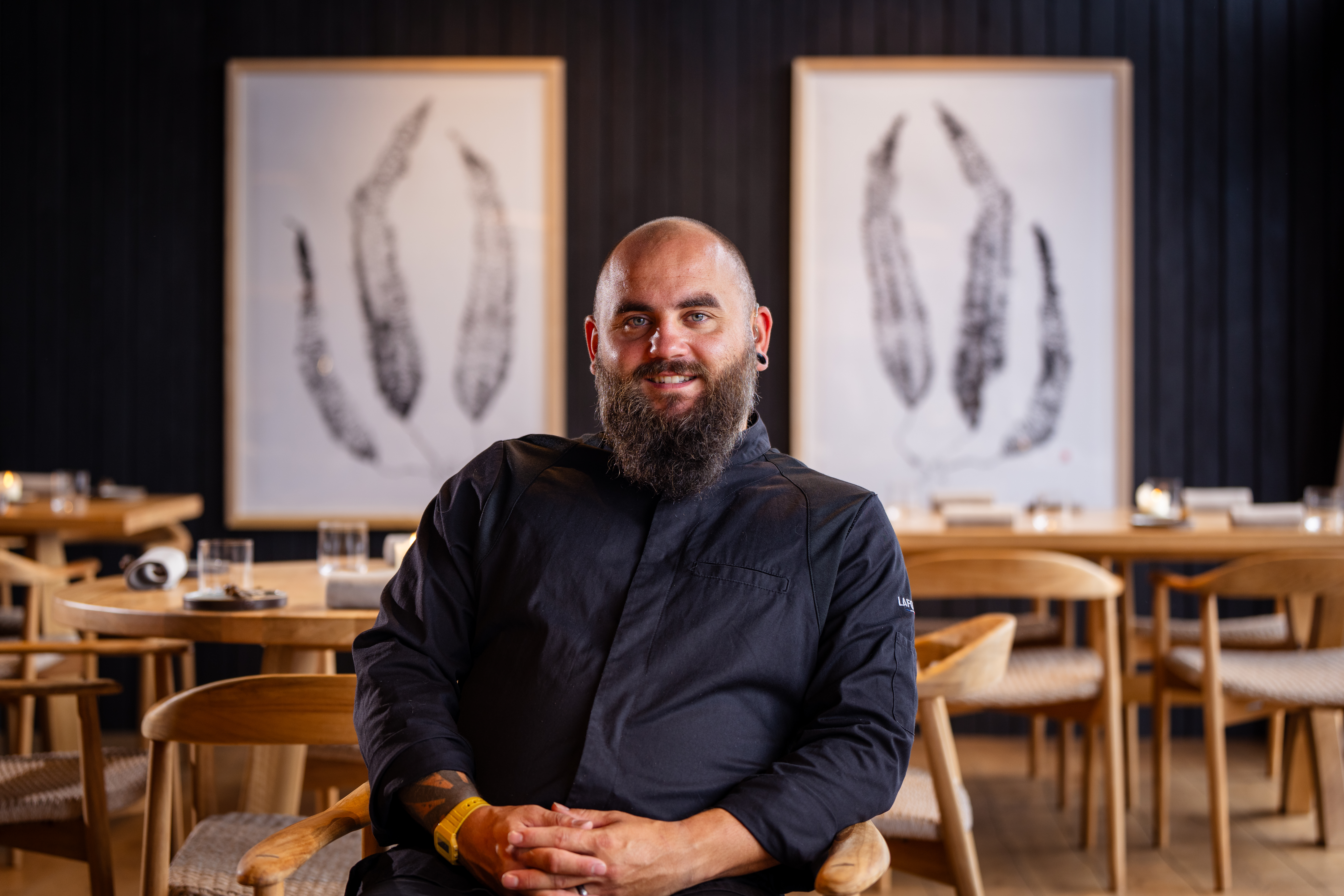 Speaking on the opening, Nathan Davies comments: “These first months in Guernsey have confirmed everything we hoped for when making the move. The island’s generosity has blown us away, meeting all the incredible local producers and cooking with their ingredients has been a true privilege. There’s a real pride here in what’s grown and harvested locally, and that’s exactly what we want to celebrate at Vraic. It’s taken a lot of work to get here, and we’ve faced a few challenges along the way, but we’re now open, back in the game, and can’t wait to share what we’ve created.”
Speaking on the opening, Nathan Davies comments: “These first months in Guernsey have confirmed everything we hoped for when making the move. The island’s generosity has blown us away, meeting all the incredible local producers and cooking with their ingredients has been a true privilege. There’s a real pride here in what’s grown and harvested locally, and that’s exactly what we want to celebrate at Vraic. It’s taken a lot of work to get here, and we’ve faced a few challenges along the way, but we’re now open, back in the game, and can’t wait to share what we’ve created.”
At Vraic, Nathan Davies has created more than just a restaurant, it’s a love letter to Guernsey, expressed in fire, flavour, craft and design. With multiple daily flights from London (just one hour away) and regular connections from France, this dining destination welcomes visitors to explore the Channel Islands.
Chef of the Week: Ollie Wyatt, Head Chef at The Alverton in Cornwall
How long have you worked at your current restaurant?
I’ve been at The Alverton for three and a half years.
Where did your passion for cooking come from and where did you learn your skills?
I was brought up around a hotel environment by my family. The passion came from always trying to learn and progress new skills, so I didn’t have to do the dishes! I learnt from various good chefs who all had different skills sets.
What do you enjoy most about being a chef?
The ability to work with some great producers and use their ingredients to give customers the enjoyment of good food. Plus, I also love the adrenaline of a busy service!
Name three ingredients you couldn’t cook without.
Cornish sea salt, fish and butter.
Which piece of kitchen equipment couldn’t you live without?
A quality knife.
What food trends are you spotting at the moment?
Simplicity on the plate, only using 4/5 components.
What do you think is a common mistake that lets chefs down?
Speed. A lot of chefs now want to rush what they’re doing and not put the time into getting things done correctly.
What is your favourite time of year for food, and why?
October/November – with game freely available and the use of rustic style vegetables, giving a hearty meal.
Which of your dishes are you most proud of?
Duo of West Country venison, bitter chocolate & port jus, squashes & kalettes.
How do you come up with new dishes?
I just speak to my suppliers and see what’s available, then consider the flavours and figure out if they match.
Who was your greatest influence?
My parents, as they always worked so many mixed hours to give me the best life they could.
Tell us three chefs you admire.
When I was young it was Gary Rhodes, Raymond Blanc and Rick Stein.
What is your favourite cookbook?
Gary Rhodes – The Complete Rhodes Around Britain.
Who do you think are the chefs to watch over the next few months?
Adam Handling, who has now moved to The Headland Hotel and Chris Eden at Watergate Bay.
What’s been your favourite new restaurant opening of the last year?
I’m not sure if it was last year that it opened, but Crocadon Farm.
Chef of the Week: Simon Osmond, Sous Chef at The Barley Sheaf in Cornwall
How long have you worked at your current restaurant?
I’ve been at The Barley Sheaf for about five years.
Where did your passion for cooking come from and where did you learn your skills?
My dad was a chef and I just kind of fell into it. I can remember he used to put me on his back in a papoose when he was cooking to settle me. I learned my skills at Westminster Kingsway College.
What do you enjoy most about being a chef?
I really enjoy feeding people, it’s that simple.
Name three ingredients you couldn’t cook without.
I’d say probably onions, garlic and salt.
Which piece of kitchen equipment couldn’t you live without?
Probably the good old Victorinox pastry knife.
What food trends are you spotting at the moment?
There seems to be a real back to basics approach to cooking again, which I’m personally really enjoying. Also there seems to be more of an emphasis on using local produce.
What do you think is a common mistake that lets chefs down?
I think a lot of chefs now fail to learn the basics, which can make learning these fundamentals later way more difficult, there’s a saying “to break the rules, you have to understand the rules”.
What is your favourite time of year for food, and why?
I’m going to have to go with classics here Spring or Autumn as they have the most going on. Things like wild garlic and beautiful fresh peas with a simple vinaigrette. Also, I love Autumn for all the incredible mushrooms.
Which of your dishes are you most proud of?
For me it would have to be the first dish I ever got onto a menu “Textures of Cauliflower” it was Roast Cauliflower Puree, Tempura Purple Cauliflower and a Yellow Cauliflower Carpaccio.
How do you come up with new dishes?
For Dan Hyams, Head Chef of the Barley Sheaf and me it’s all about what we want to eat at the time and then going from there. I always use the old saying “Keep it Simple, Stupid” and I think about what ingredients and flavours work well together and then go from there.
Who was your greatest influence?
I’d have to say my dad for the amazing Sunday roasts I had growing up; it was always all the family around the table, and of course the Christmas Dinner.
Tell us three chefs you admire.
Dominique Crenn, Massimo Bottura and Gary Rhodes.
What is your favourite cookbook?
Whilst not very “cool” probably Practical Cookery – I love that the photos haven’t changed much over the years, that or Institut Paul Bocuse.
Who do you think are the chefs to watch over the next few months?
After taking part in The Chefs’ Forum lunch event recently, I’d have to say I’m really looking forward to seeing what Phoebe Mortimer is going to do next as a pastry chef, I think she has the right attitude.
What’s been your favourite new restaurant opening of the last year?
I’m really looking forward to seeing what happens with Ugly Butterfly at the Headland, I think it’s a great match.
Watercress Pilot Takes a Lead on Health, Sustainability and Hospital Menus
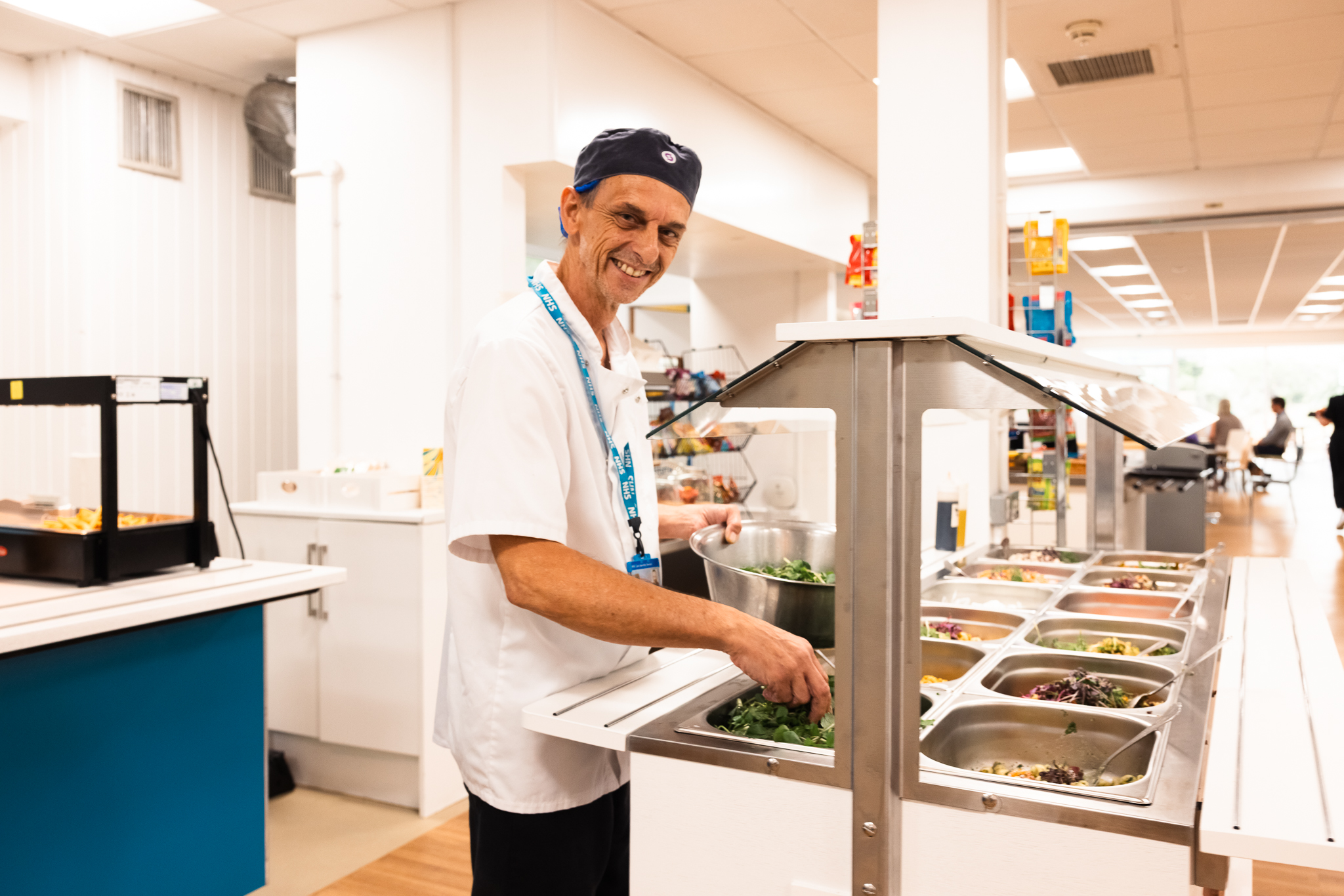 This week, The Watercress Company made a significant step forward in its mission to promote health and sustainability across the public sector. Visiting acclaimed development chef Mathieu Eke, the team discussed how watercress could become a staple on NHS menus.
This week, The Watercress Company made a significant step forward in its mission to promote health and sustainability across the public sector. Visiting acclaimed development chef Mathieu Eke, the team discussed how watercress could become a staple on NHS menus.
This is the beginning of a number of workshops and events being arranged with the NHS, The Chefs’ Forum, and The Watercress Company.
The project will see fresh watercress trialled in hospital dishes across Dorset, Hampshire and Wiltshire. The goal: to demonstrate how this leafy green can support patient recovery, boost flavour and nutrition, while supporting British growers and cutting food waste.
Healthcare chefs from across the region are invited to Waddock Farm on 26th August for a showcase event. The day will include a farm tour, sustainability insights, and live cooking demos led by Chefs, Mathieu Eke and Al Brady.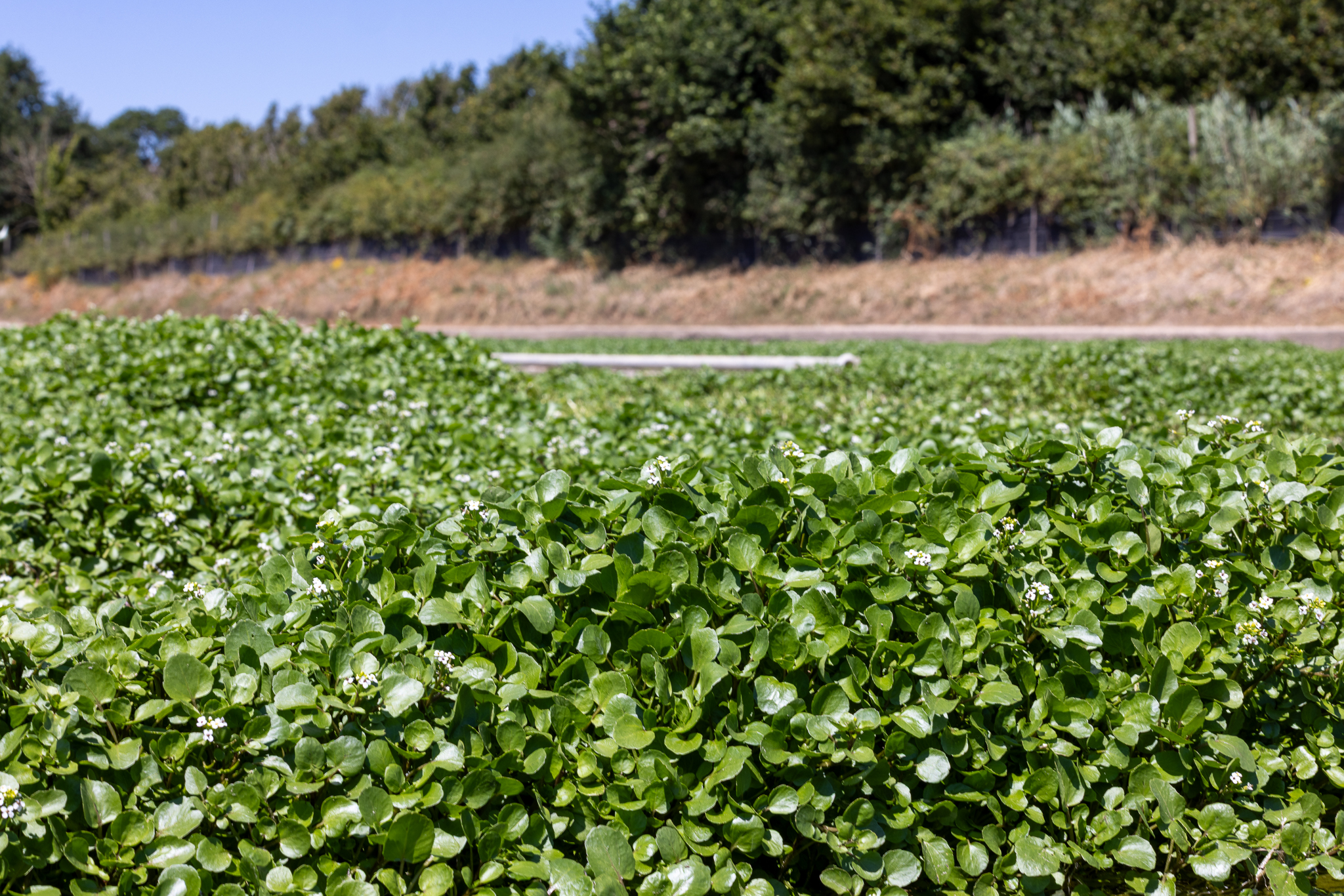
Phillip Shelley, Senior Operational Manager & National Lead for Net Zero Food, NHS England, seeks excellence and innovation in hospital catering, and is proactively supporting this pilot, and will be introducing the project at Waddock Farm.
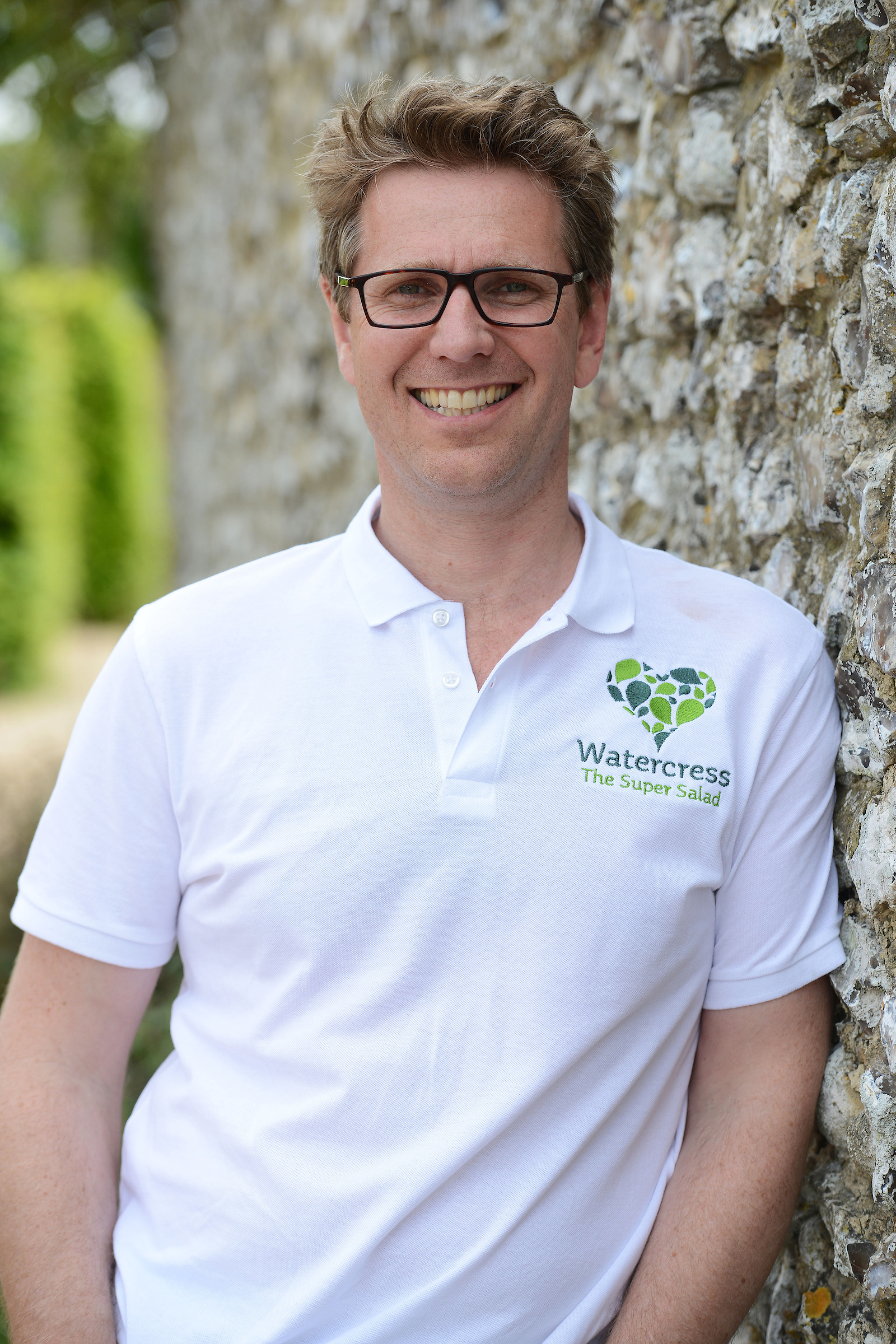
Tom Amery, Managing Director at The Watercress Co, said:
“This pilot project is a win-win: for the environment, for the NHS, and for the health of the patients. Watercress is nutrient-dense, easy to grow locally, and fits beautifully into sustainable menus. We’re keen to see it championed in hospitals as both a culinary and a clinical asset and can support this through direct delivery of fresh produce, helping patients experience the taste and health benefits of eating watercress straight from the farm. Working with Mathieu and his team to develop and trial recipes is an extension of the way in which we support our product with evidence-based research.”
The initiative is part of a wider movement to reimagine institutional food systems — where fresh, whole ingredients form the foundation of care. With growing national focus on the role of food in both prevention and recovery, projects like this are crucial.
Claire King, a local voice in food systems and public health said:
“We need food systems that serve people — and that starts with procurement. Prioritising whole, nutrient-rich ingredients like watercress in places like hospitals, schools, care homes and even prisons has the power to shift the dial on public health. It’s incredibly exciting to see watercress leading the way. This is about creating menus that heal, nourish, and support sustainability from root to plate.”
 Mathieu Eke, Development Chef and Facilities Manager at Yeovil District Hospital, explained how this project is closely tied to wider sustainability goals:
Mathieu Eke, Development Chef and Facilities Manager at Yeovil District Hospital, explained how this project is closely tied to wider sustainability goals:
“At Yeovil, we’re working towards ambitious net zero targets — and food has a vital role to play. Reducing waste, sourcing local produce, and designing menus that nourish both patients and the planet is essential work that supports systems change. Our work here is not only transforming hospital food, but also serving the wider community and looking after the environment.”
The drive for transformation is being championed by The Chefs’ Forum. Catherine Farinha, CEO, is used to gathering a wide range of key voices to support positive change in the NHS. Her first Healthcare Chefs’ Knowledge book became a trusted and widely shared comprehensive resource. The second book focuses on Eating the Rainbow and is eagerly anticipated and set to launch on the 14th October at a special launch event to be held at the University of West London. Her endeavours to improve health and sustainability whilst celebrating culinary talent are well recognised.
The Waddock Farm event promises to be a powerful day of knowledge-sharing, field-to-fork inspiration, and practical steps forward for healthcare chefs across Wessex.
NHS Chefs are Invited to an Exclusive Watercress Farm Experience at Waddock Farm
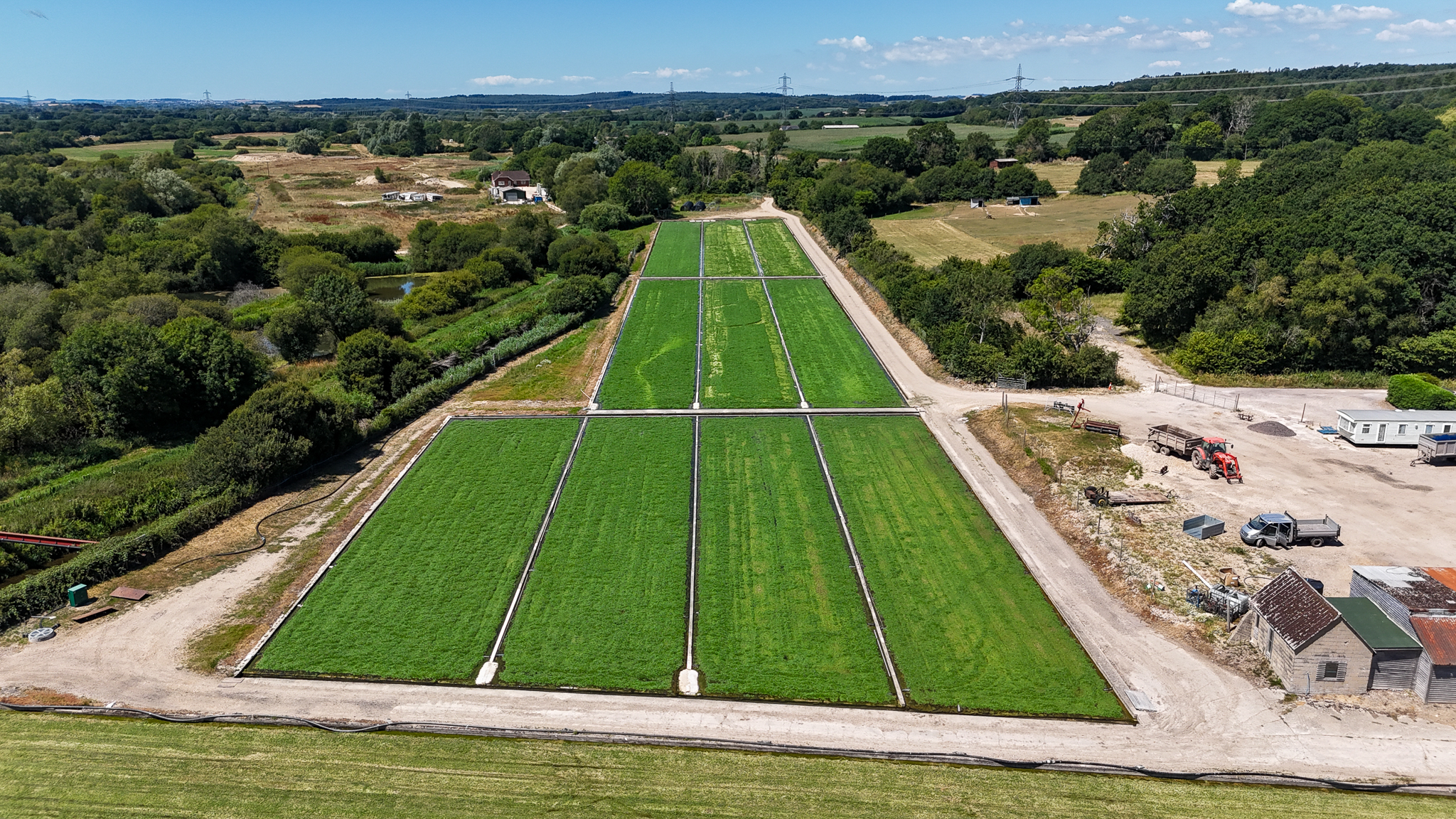
NHS Chefs and Catering Managers from Trusts across Wessex are being offered a unique opportunity to visit Waddock Farm, home of The Watercress Company, for an engaging afternoon of learning, tasting, and culinary inspiration, all focused on boosting the health and sustainability of hospital menus.
Organised in partnership with The Chefs’ Forum, this free event will take place on Tuesday 26th August 2025, from 12-3pm at Waddock Farm, Dorchester, DT2 8QY.
Attendees will gain a ‘behind-the-scenes’ insight into one of Britain’s most sustainable, low-carbon crops, with a focus on how watercress can help NHS catering teams meet nutritional targets while delivering fresh, vibrant meals for patients.
Event Highlights Include:
An Introduction to The Watercress Company by Managing Director, Tom Amery.
Tom said:
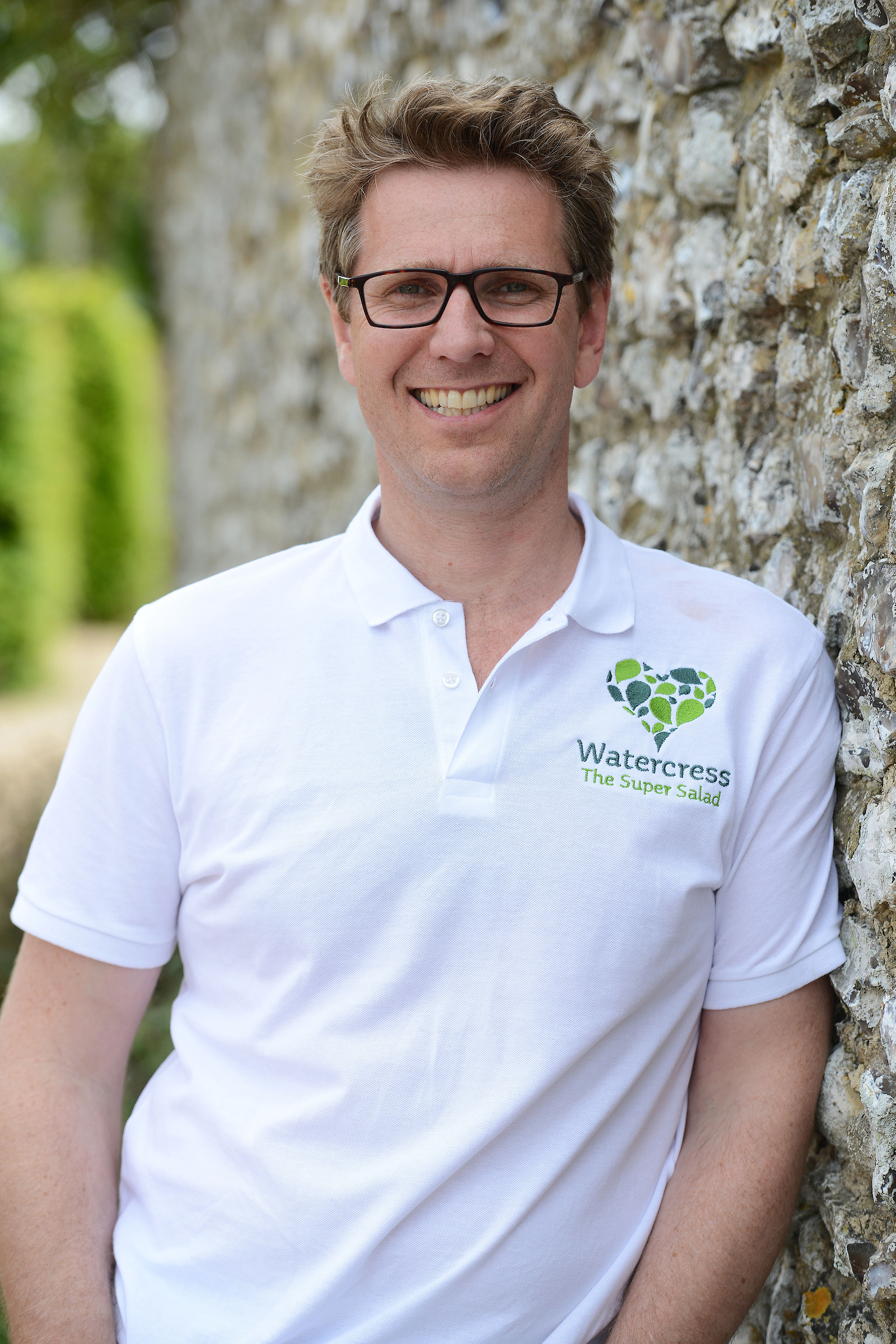 “We look forward to welcoming healthcare chefs to the farm – the provenance of watercress is a story worth sharing. From its natural spring-fed beds to its heritage as one of Britain’s oldest cultivated leafy greens, watercress represents the best of sustainable, local agriculture. Understanding where and how it’s grown adds meaning to every plate and reinforces the connection between quality ingredients and patient wellbeing.”
“We look forward to welcoming healthcare chefs to the farm – the provenance of watercress is a story worth sharing. From its natural spring-fed beds to its heritage as one of Britain’s oldest cultivated leafy greens, watercress represents the best of sustainable, local agriculture. Understanding where and how it’s grown adds meaning to every plate and reinforces the connection between quality ingredients and patient wellbeing.”

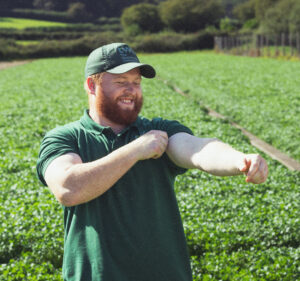 Meet the Growers: Tour Waddock Farm and discover how watercress is grown using natural spring water and environmentally friendly methods.
Meet the Growers: Tour Waddock Farm and discover how watercress is grown using natural spring water and environmentally friendly methods.
Nutritional Insights: Learn about the exceptional health benefits of watercress, including its high vitamin and antioxidant content.
Live Cookery Demonstration on The Watercress Company Demo Stage: Watch Mathieu Eke, Head of Facilities Hotel Services at Simply Serve Ltd, Yeovil Hospital, and Alex Brady, Chef Consultant at The Watercress Company, demonstrate quick, cost-effective recipes suitable for healthcare settings with plenty of tasters included.
Goody Bags and Takeaways: All guests will receive a specially designed educational booklet featuring information on the history, farming, product formats, and nutritional research around watercress, plus recipe ideas and QR codes linking to exclusive video content.
“This event is designed to give NHS chefs hands-on experience with a versatile, nutritious ingredient while supporting the shift towards healthier, more sustainable hospital food,” said Tom Amery, Managing Director at The Watercress Company. “It’s a chance to see how a British-grown product can make a real difference on the plate and in patient outcomes.
 Watercress is one of the most nutrient-dense foods available, rich in vitamins, minerals, and natural compounds with evidence-backed health benefits. By integrating ingredients like this into whole food cooking, we’re not only elevating flavour and freshness, but also helping to meet NHS ambitions around nutrition, sustainability, and locally sourced food.”
Watercress is one of the most nutrient-dense foods available, rich in vitamins, minerals, and natural compounds with evidence-backed health benefits. By integrating ingredients like this into whole food cooking, we’re not only elevating flavour and freshness, but also helping to meet NHS ambitions around nutrition, sustainability, and locally sourced food.”
The event is free of charge to NHS chefs and offers a rare opportunity to connect with growers, nutrition experts, and fellow catering professionals.
Limited spaces available: To book your place, email: brogen@redcherry.co.uk
How Metropolis Food Hall Turned Water into a Profitable Guest Experience
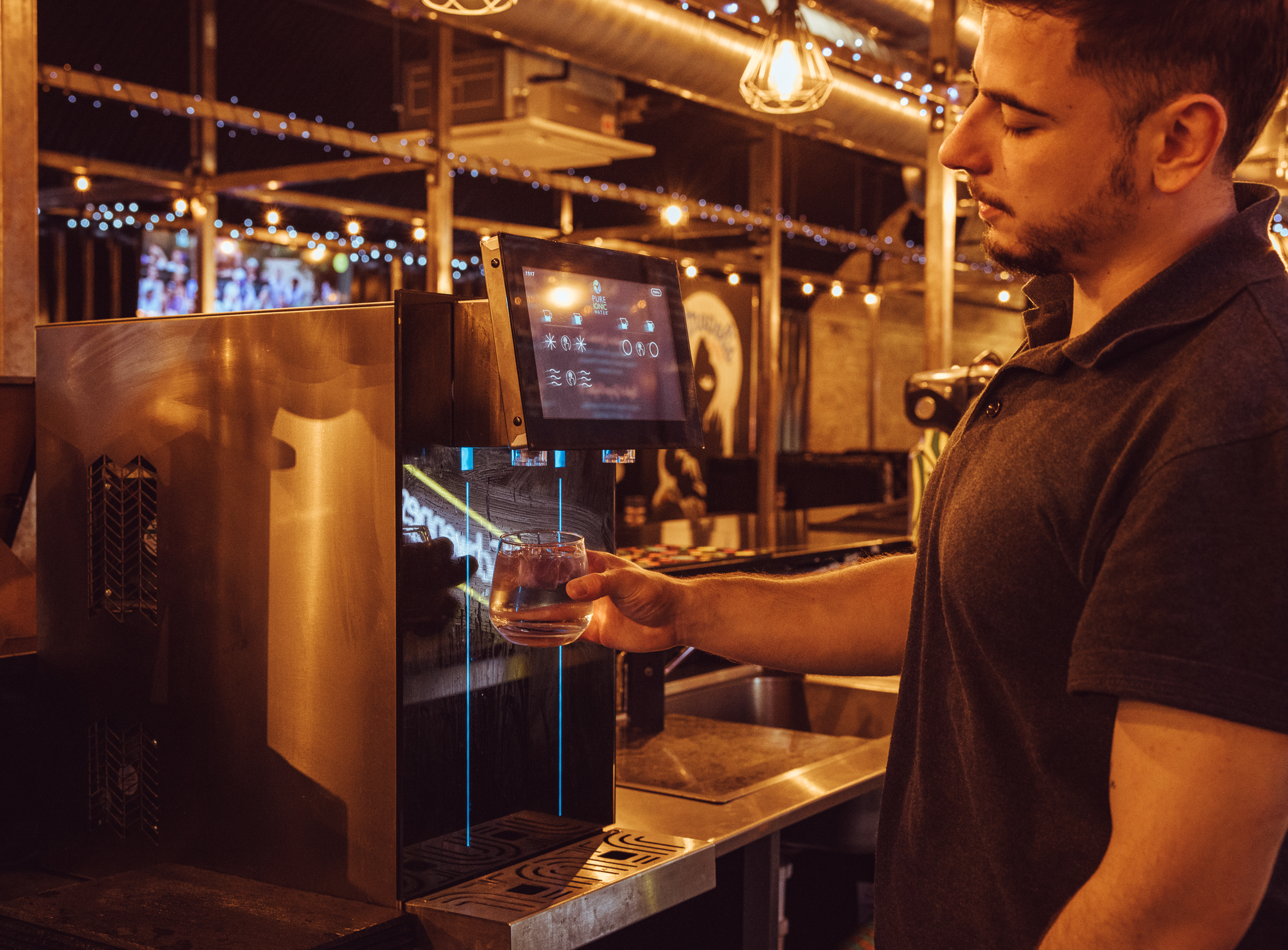 In an industry where every detail counts, Metropolis Food Hall in London’s Vauxhall, has made a quiet but high-impact change, and the results are speaking volumes.
In an industry where every detail counts, Metropolis Food Hall in London’s Vauxhall, has made a quiet but high-impact change, and the results are speaking volumes.
After installing the whole-house system (front of house and back of house) the PureioniQ high purification system combined with the PureSoft salt free conditioning system and the enhanced hydrogen rich Pure Ionic Water™ system across nine kitchens, the bar (still and sparkling premium table water on tap) and 52 water points, the popular Vauxhall venue has achieved operational savings, healthier staff, happier guests, and a profitable new revenue stream. The upgrade has addressed two common industry pain points in one hit: eliminating limescale issues across the venue while monetising premium water offerings front-of-house.
“We’ve enhanced the guest experience and streamlined operations at the same time,” says Dr Anna Yaqub, Managing Director of Metropolis Food Hall. “It’s reduced costs, lifted team energy, and opened up a new product category for us.”
The Business Case for Better Water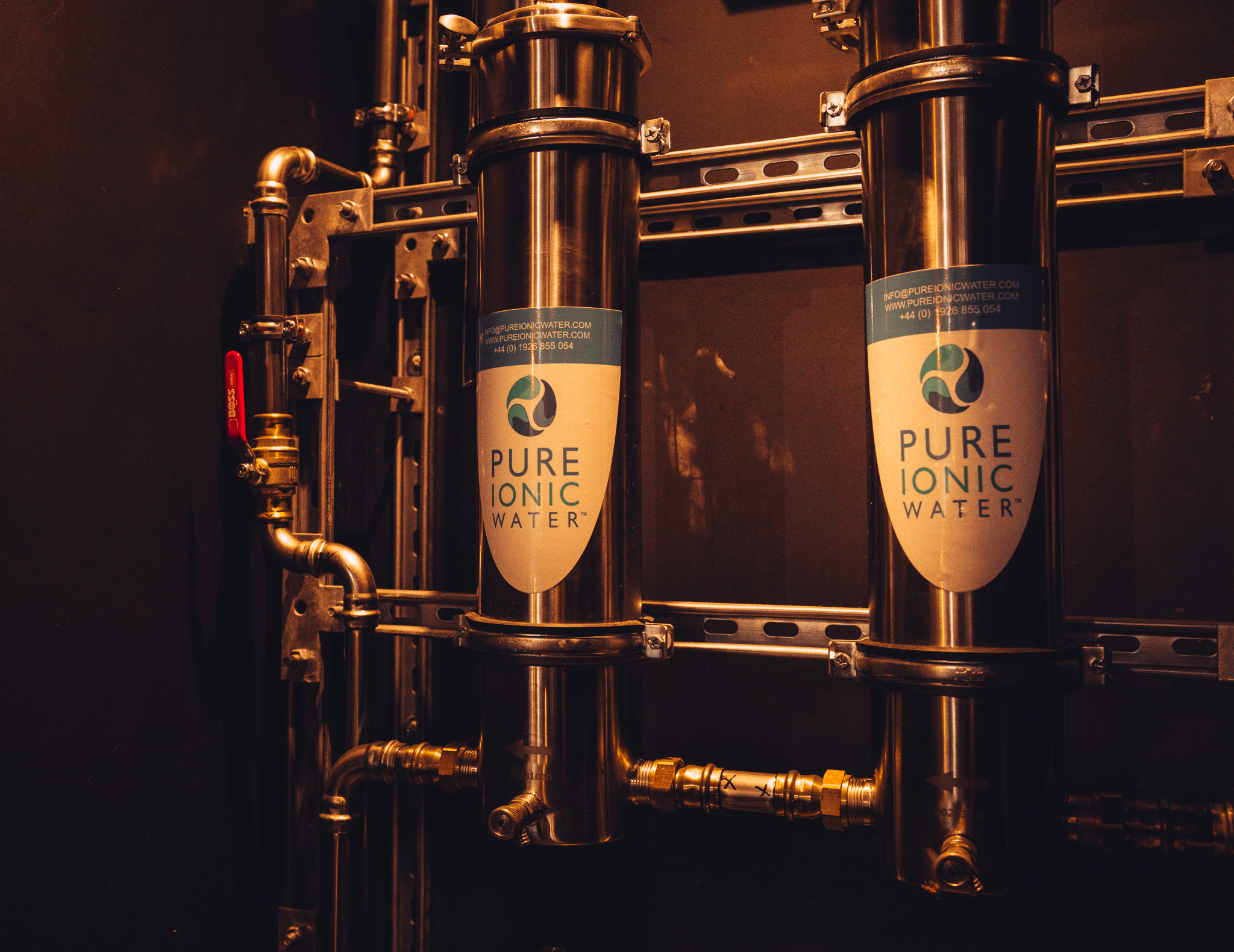
Before the installation, Metropolis wrestled with hard-water maintenance headaches, sluggish staff during long shifts, and rising costs for filter replacements. The PureioniQ high purification system combined with the PureSoft salt free conditioning system then enhanced to becomes the Hydrogen Rich fantastic Pure Ionic Water™ which provided an all-in-one solution:
- Zero limescale residue on equipment, dish and glassware
- Consistent, high-quality water throughout the venue for cooking and drinking
- Reduced maintenance and downtime
- An upsell opportunity with premium bottled and by-the-glass water
Guests now willingly pay £3 for 250ml bottles, £4 for 500ml bottles, or £2.50 per glass, generating £150-£200 in additional weekly revenue, all while reinforcing Metropolis’s sustainability credentials by eliminating single-use plastics.
Small Footprint, Big Impact
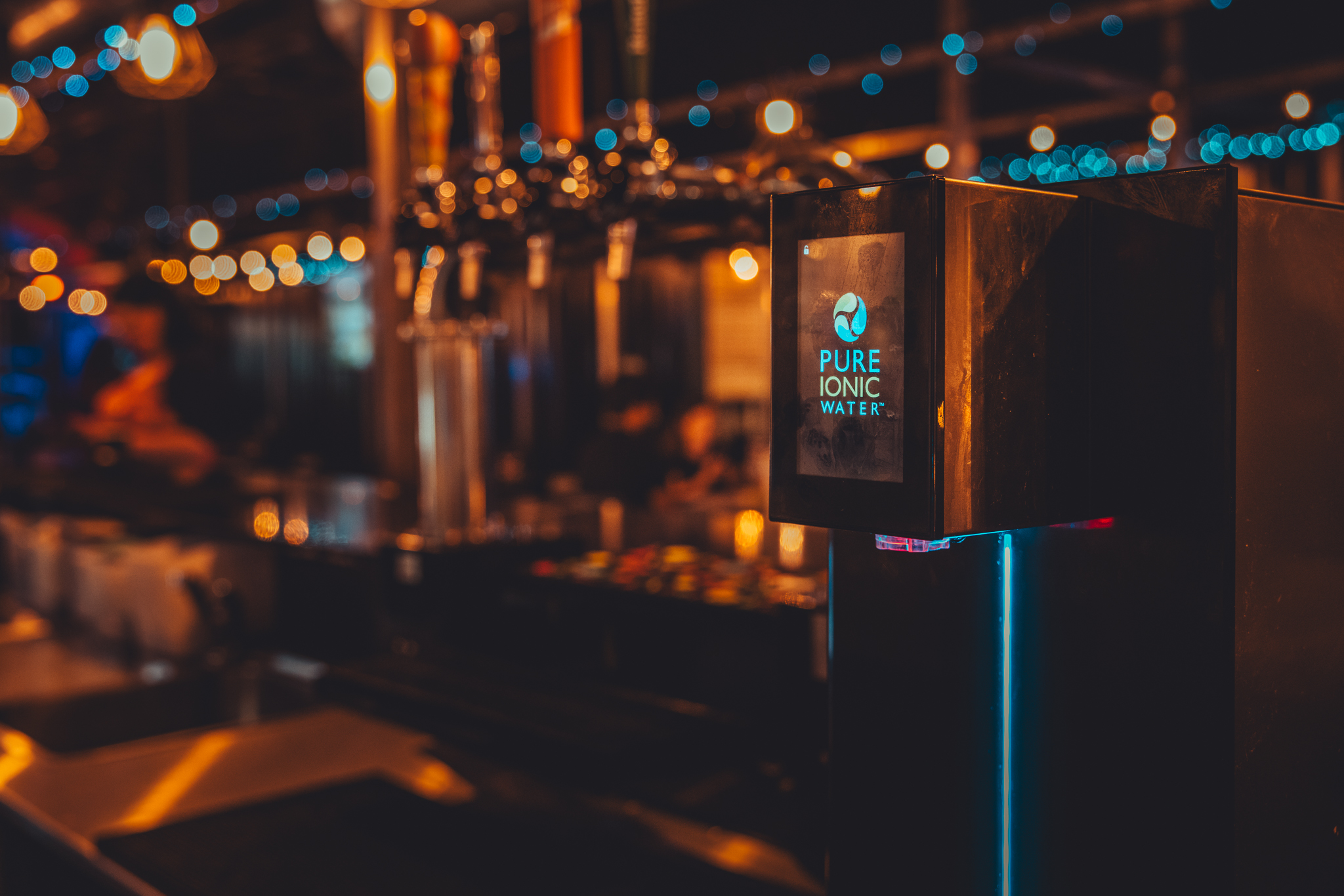 Unlike traditional softeners, the system requires no chemicals, no salt, no major maintenance, and runs off a standard 13A socket. With a compact, under-sink design, it has been seamlessly integrated across the site with minimal disruption.
Unlike traditional softeners, the system requires no chemicals, no salt, no major maintenance, and runs off a standard 13A socket. With a compact, under-sink design, it has been seamlessly integrated across the site with minimal disruption.
There are also many tangible Business Benefits to adopting PureSoft systems in your business. Since installation, Metropolis has reported:
- Fewer equipment repairs and replacements
- Lower labour input on descaling and maintenance
- Improved hydration and productivity among staff
- Positive customer feedback on water quality and brand experience
“The elegant presentation in branded, reusable bottles enhances our premium feel,” Dr Anna Yaqub, Managing Director notes. “The guest response has been phenomenal, and the operational improvements have been immediate.”
Why It Works for Hospitality
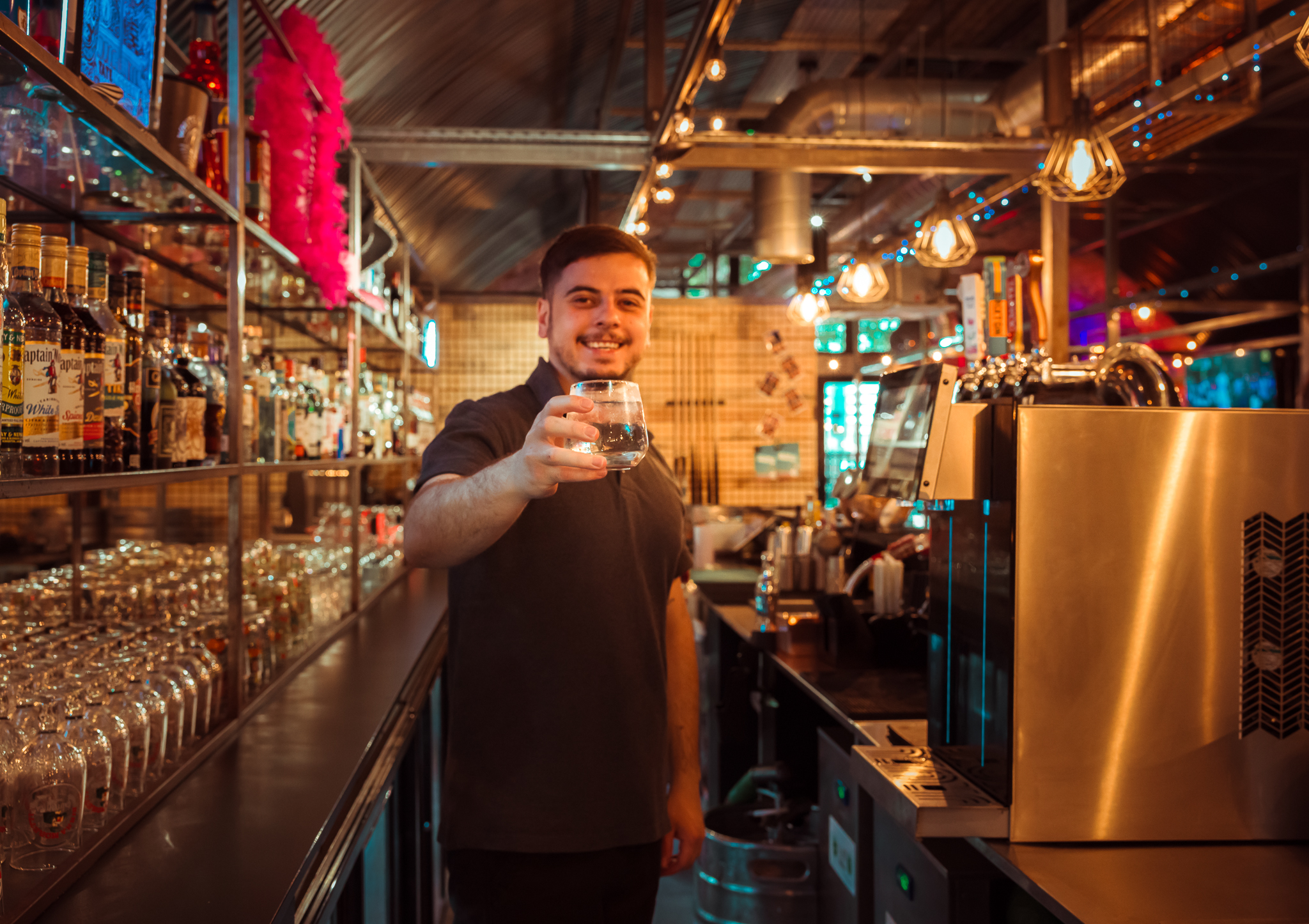 For operators looking to reduce operational friction while creating memorable guest touchpoints, Metropolis offers a clear blueprint. The PureioniQ high purification system combined with the PureSoft salt free conditioning system And the enhanced hydrogen rich, Pure Ionic Water™ delivers:
For operators looking to reduce operational friction while creating memorable guest touchpoints, Metropolis offers a clear blueprint. The PureioniQ high purification system combined with the PureSoft salt free conditioning system And the enhanced hydrogen rich, Pure Ionic Water™ delivers:
- Consistency across all service points
- Operational savings in terms of space and money
- Enhanced wellness for kitchen and front of house teams
- A sustainable, premium table water product to upsell
In an industry where guest experience drives margin, Metropolis Food Hall has turned a basic utility into a revenue-generating asset. Pure Ionic Water also aligns with modern hospitality values of quality, wellness, and sustainability.as well as an award winning ionically purified enhanced, high quality, premium bottled table, hydrogen rich, anti oxidant, anti inflammatory, alkaline mineral rich Pure Ionic Water ™.
Interested in learning more about Pure Ionic Water™ for your venue? Contact: francesca.walters@wet-global.com
Photo credit: Carlos Farinha
Chef of the Week: Midhun Ayyappan, Executive Sous at St Martins Lane Hotel, London
How long have you worked at your current restaurant?
I have worked at St Martins Lane Hotel for 2 years.
Where did your passion for cooking come from and where did you learn your skills?
My passion for cooking blossomed in my childhood when I often visited my neighbour’s catering kitchen, where I worked part-time. I honed my skills through formal culinary training after graduating, but much of my learning came from working alongside experienced chefs in various restaurant settings, absorbing their techniques and philosophies.
What do you enjoy most about being a chef?
The joy of being a chef lies in the ability to create and share. I love the artistry involved in crafting a dish and the immediate gratification of seeing diners enjoy the meals I’ve prepared. It’s incredibly fulfilling to know that my work can evoke happiness and create lasting memories.
Name three ingredients you couldn’t cook without.
I couldn’t cook without salt for its incredible ability to enhance flavours. Fresh herbs, especially thyme and parsley, are vital for adding brightness and depth. Lastly, good-quality olive oil is essential for not only cooking but also for finishing dishes with richness and flavour.
Which piece of kitchen equipment couldn’t you live without?
My chef’s knife is indispensable. It’s not just a tool; it’s an extension of my creativity in the kitchen. A well-balanced knife allows for precision and speed, which are crucial in a bustling kitchen.
What food trends are you spotting at the moment?
I’m seeing a significant shift towards regenerative agriculture and zero-waste cooking. Chefs are becoming more conscious of their environmental impact, focusing on sourcing ingredients sustainably and utilizing every part of them, which leads to greater creativity and innovation in the kitchen.
What do you think is a common mistake that lets chefs down?
A common pitfall is neglecting the importance of seasoning. Many chefs focus on technique but forget that the right balance of seasoning can elevate a dish from ordinary to extraordinary. It’s essential to taste and adjust throughout the cooking process.
What is your favourite time of year for food, and why?
Spring is my favourite season for food. It heralds an abundance of fresh produce, like asparagus, peas, and strawberries, which bring vibrant colours and flavours to the table. The sense of renewal and the excitement of seasonal ingredients inspire me to create lighter, more invigorating dishes.
Which of your dishes are you most proud of?
I am particularly proud of my wild bass dish, served with heritage tomato confit and velvety carrot purée. This dish truly reflects my culinary journey, showcasing a harmonious blend of rich, fresh flavours with a touch of elegance. The presentation is carefully crafted to be visually stunning, highlighting the vibrant colours and delicate textures of each component. It embodies my passion for combining refined techniques with seasonal ingredients to create a memorable dining experience.
How do you come up with new dishes?
New dishes often emerge from a blend of inspiration and experimentation. I draw from seasonal ingredients, cultural influences, and personal experiences, allowing myself the freedom to play with flavours and techniques until something truly unique comes to life.
Who was your greatest influence?
My greatest influence is undoubtedly my mentor, who taught me the importance of technique and creativity. Their passion for the culinary arts and dedication to excellence inspired me to push my boundaries and refine my own style.
Tell us three chefs you admire?
I greatly admire Thomas Keller for his unwavering commitment to perfection and his mastery of French cuisine. I also admire Chef Wilfrid Hocquet of Blue by Ducasse in Bangkok for his innovative approach to French cuisine and his dedication to culinary excellence. Additionally, I am deeply grateful to Rohit Shenoy, my executive chef and mentor, for his invaluable guidance and support in honing my skills.
What is your favourite cookbook?
One of my favourite cookbooks is “The Flavour Bible” by Karen Page and Andrew Dornenburg. It’s not just a collection of recipes; it’s a comprehensive guide to flavour pairings that fuels creativity in the kitchen.
Who do you think are the chefs to watch over the next few months?
Daniel Humm, with his ongoing influence and new vegan projects, Humm remains a chef to watch. Rene Redzepi, as he continues to innovate with Noma in Copenhagen, his work remains highly influential. Christian Faulkner, head chef at the two-Michelin-starred Ikoyi, Faulkner is known for his bold use of spices and seafood, creating dishes that are both innovative and deeply flavourful.
What’s been your favourite new restaurant opening of the last year?
Pavyllon London: Located at the Four Seasons Park Lane, this restaurant is known for its elegant French cuisine and is a must-visit for those seeking a sophisticated dining experience.
The Partnership Between The Chefs’ Forum & NHS England Make Edie Sustainability Awards Final for Groundbreaking Healthcare Chefs’ Workshops
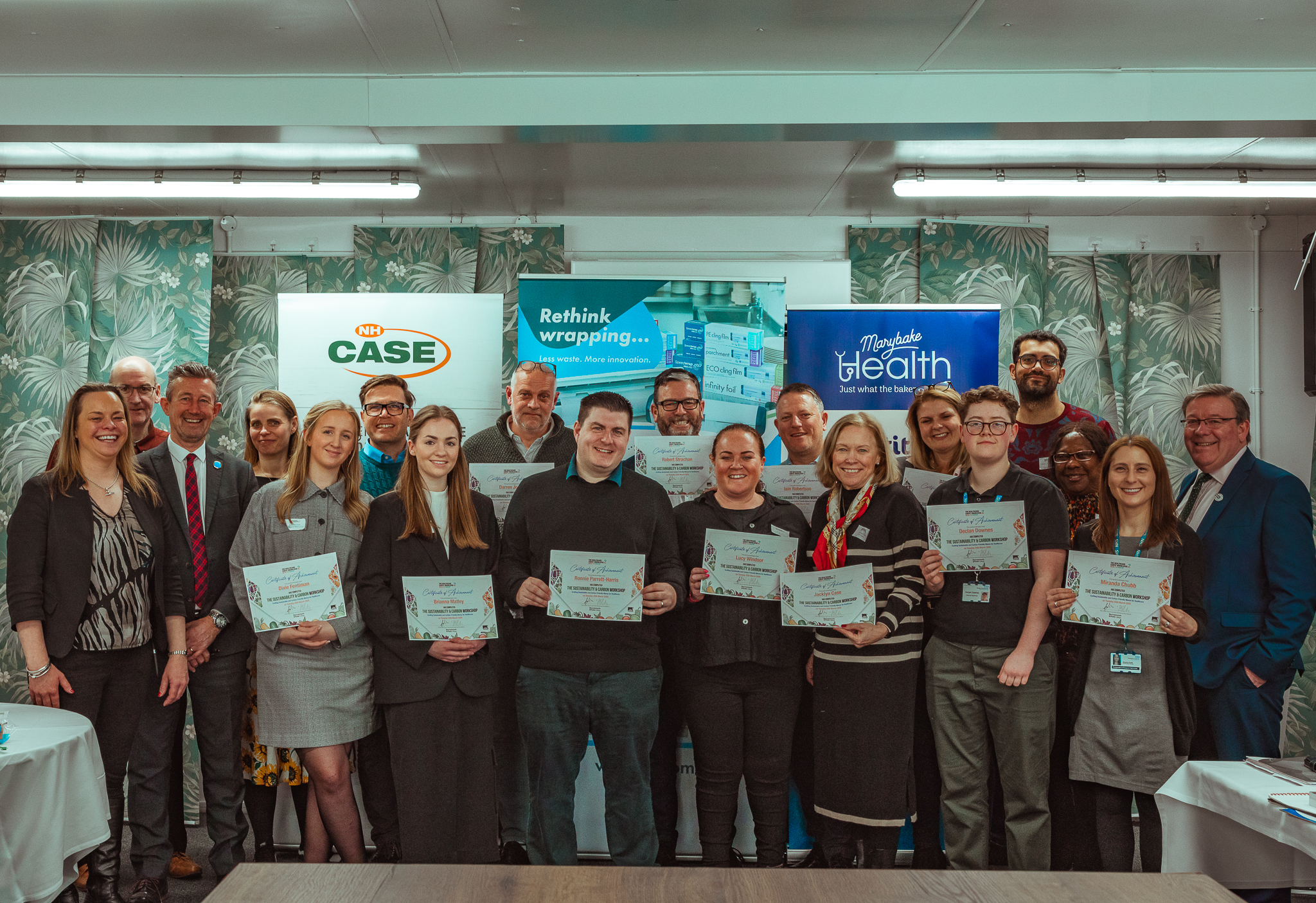 The Chefs’ Forum is thrilled to announce that we’ve reached the finals of the prestigious Edie Sustainability Awards (or net-zero Oscars), in recognition of our nationwide series of six workshops developed in partnership with NHS England and an incredible network of healthcare catering experts.
The Chefs’ Forum is thrilled to announce that we’ve reached the finals of the prestigious Edie Sustainability Awards (or net-zero Oscars), in recognition of our nationwide series of six workshops developed in partnership with NHS England and an incredible network of healthcare catering experts.
This incredible achievement celebrates a unique collaboration between The Chefs’ Forum, NHS England and key industry professionals, all united by a common purpose: transforming NHS food for a healthier, more sustainable future.
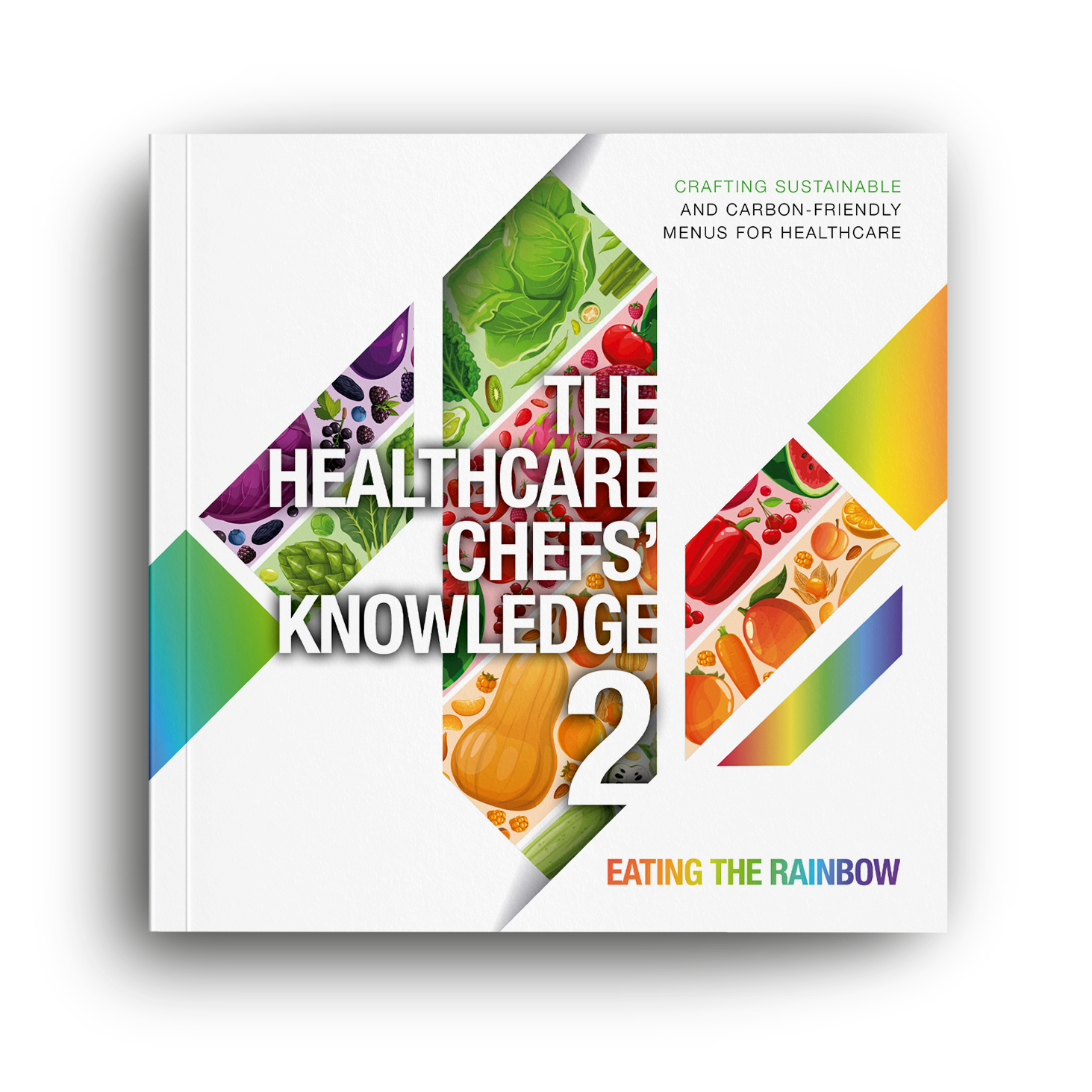 Launched to accompany the second edition of The Healthcare Chefs’ Knowledge, these workshops set out to drive real change in hospital catering following the recommendations of the NHS Hospital Food Review (2020). Published last year, this essential resource spotlights 100 carbon-friendly recipes designed to boost patient health, reduce environmental impact, and inspire the next generation of healthcare chefs.
Launched to accompany the second edition of The Healthcare Chefs’ Knowledge, these workshops set out to drive real change in hospital catering following the recommendations of the NHS Hospital Food Review (2020). Published last year, this essential resource spotlights 100 carbon-friendly recipes designed to boost patient health, reduce environmental impact, and inspire the next generation of healthcare chefs.
Phil Shelley, National Lead for Food (NZC) at NHS England, said:
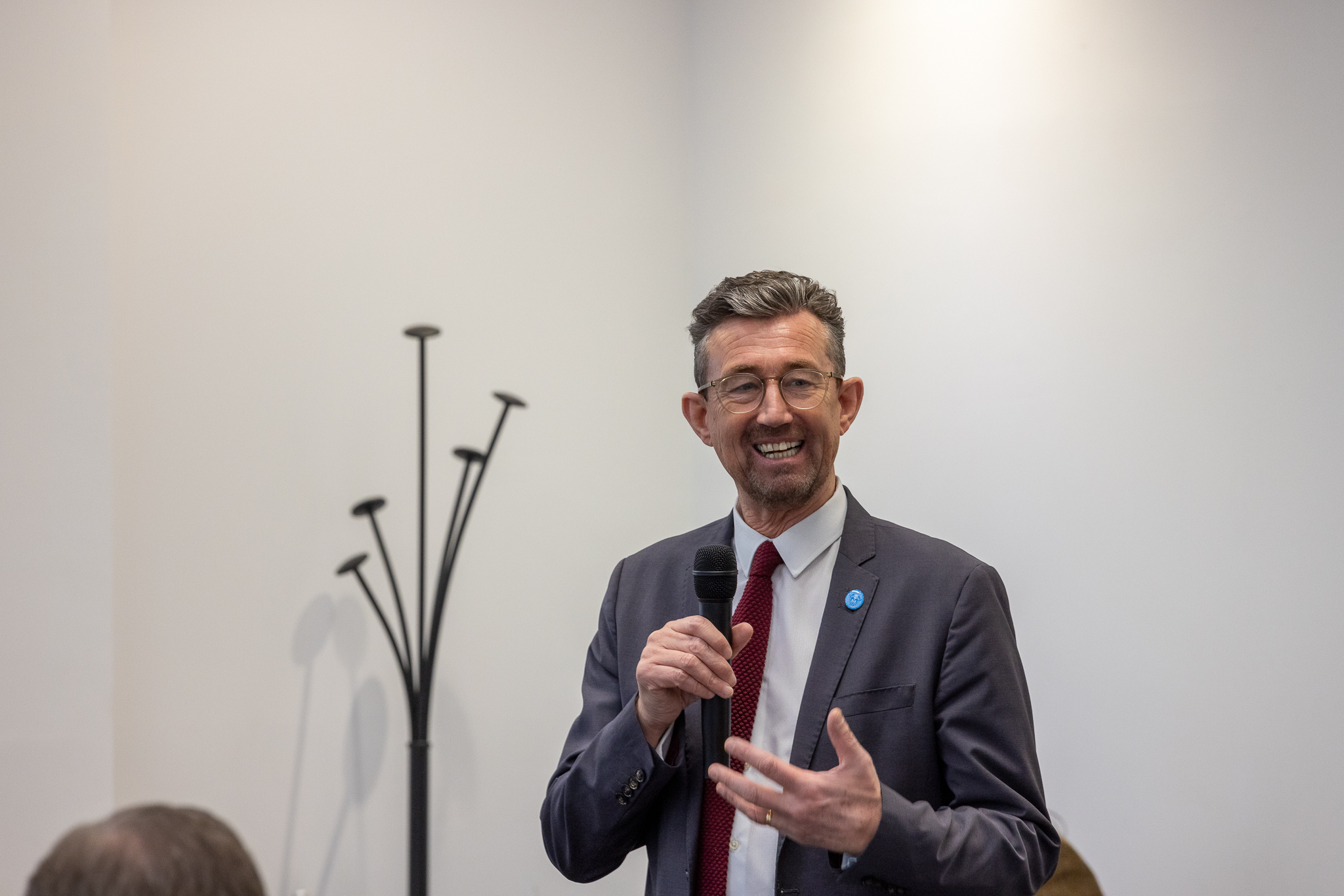 “The Healthcare Chefs’ Knowledge 2: Eating The Rainbow will cover everything healthcare chefs and stakeholders need to understand about modern hospital food practices and the positive changes being introduced, with a particular focus on sustainability and developing healthy, nutritious menus. We are very excited to work with The Chefs’ Forum to engage chefs, showcase best practices, and provide a valuable resource for hospital kitchens.”
“The Healthcare Chefs’ Knowledge 2: Eating The Rainbow will cover everything healthcare chefs and stakeholders need to understand about modern hospital food practices and the positive changes being introduced, with a particular focus on sustainability and developing healthy, nutritious menus. We are very excited to work with The Chefs’ Forum to engage chefs, showcase best practices, and provide a valuable resource for hospital kitchens.”
The six workshops have been a vibrant showcase of cross-sector collaboration, gathering NHS chefs, catering managers, dietitians, and chef students at leading culinary colleges across England. From the South West’s Food Works SW to University of West London, South & City College Birmingham, Bournemouth and Poole College, Northampton and Bradford College, each session facilitated hands-on learning, sustainable menu design, and low-carbon recipe development.
Max Kindred, Net Zero Senior Insight Manager, Soft FM at NHS England, added:
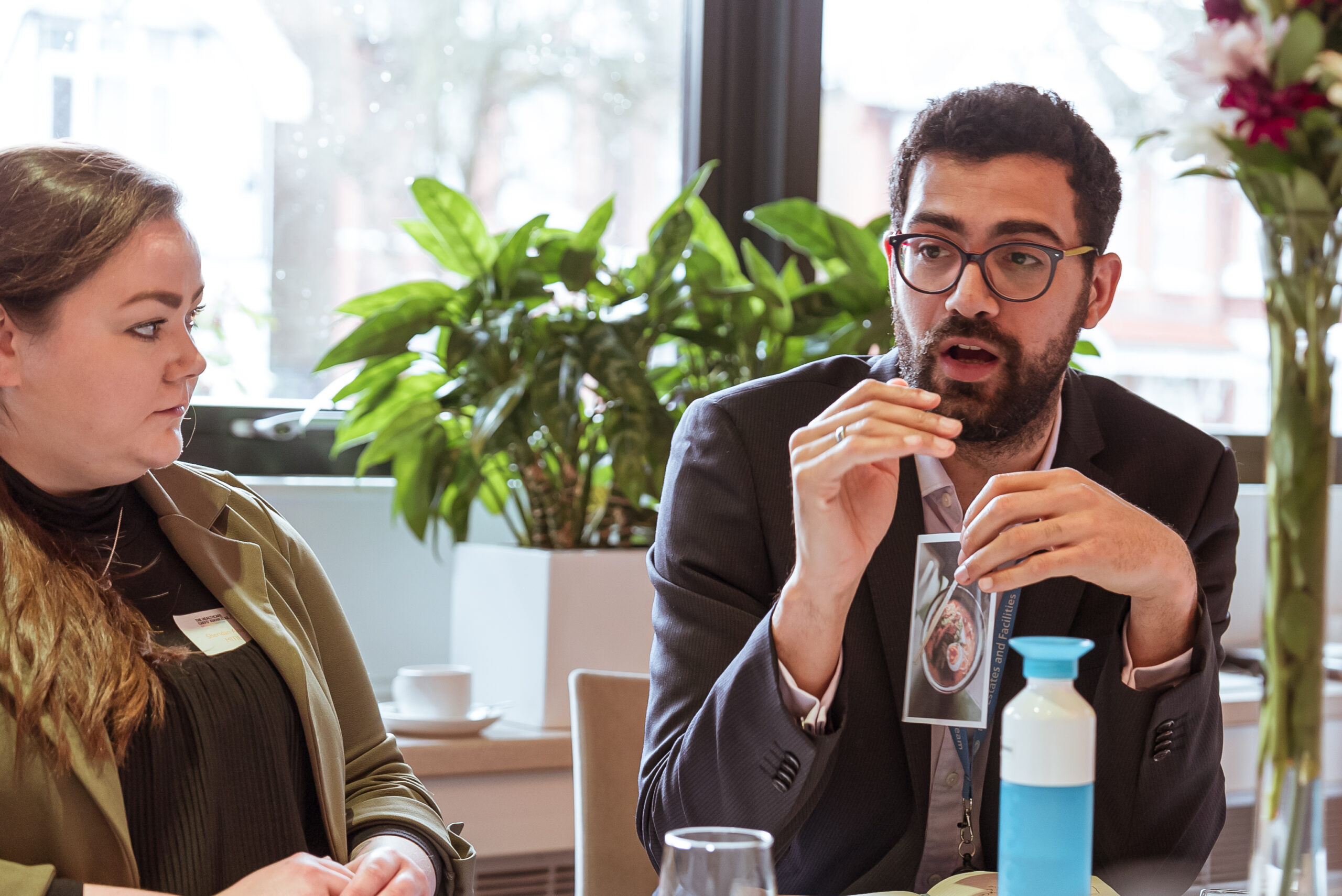 “These workshops have been a brilliant way to bring together the entire NHS food value chain and ensure the national approach to Net Zero is shaped by those on the ground. This collaboration has been a game-changer in connecting catering teams with sustainability strategy, building resilience and cost-efficiency into NHS food.”
“These workshops have been a brilliant way to bring together the entire NHS food value chain and ensure the national approach to Net Zero is shaped by those on the ground. This collaboration has been a game-changer in connecting catering teams with sustainability strategy, building resilience and cost-efficiency into NHS food.”
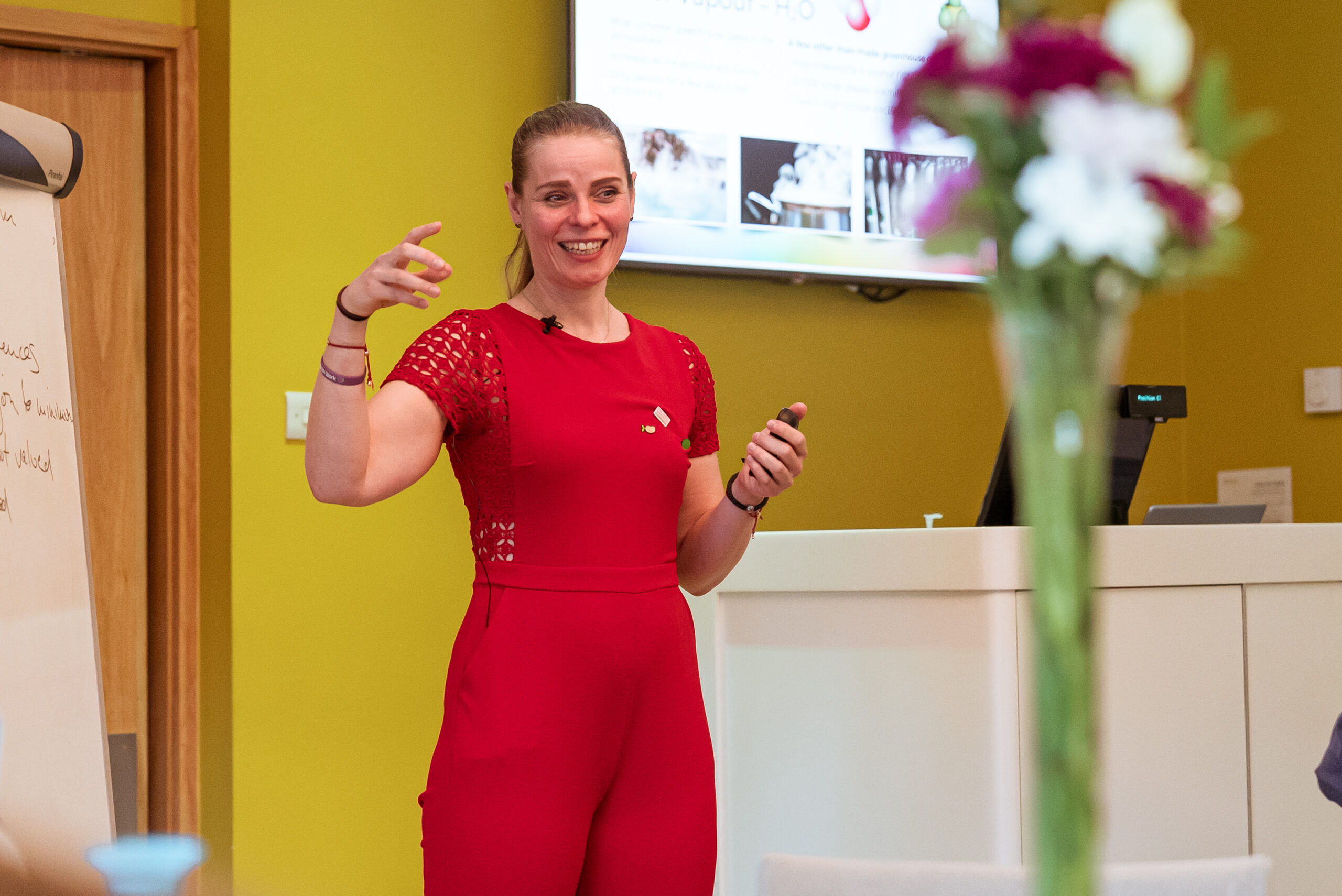 Also supporting the workshops was Andrea Zick, PhD researcher at the UK Food Systems Centre for Doctoral Training:
Also supporting the workshops was Andrea Zick, PhD researcher at the UK Food Systems Centre for Doctoral Training:
“I’m honoured to have designed and facilitated these workshops, which underscored the importance of systems thinking and structured collaboration. Achieving the ambitions of the Hospital Food Review relies on exactly this type of joined-up approach. This initiative showed how key it is for chefs, dietitians, and catering managers to work together, ensuring patients receive nutritious, sustainable, and cost-effective meals.”
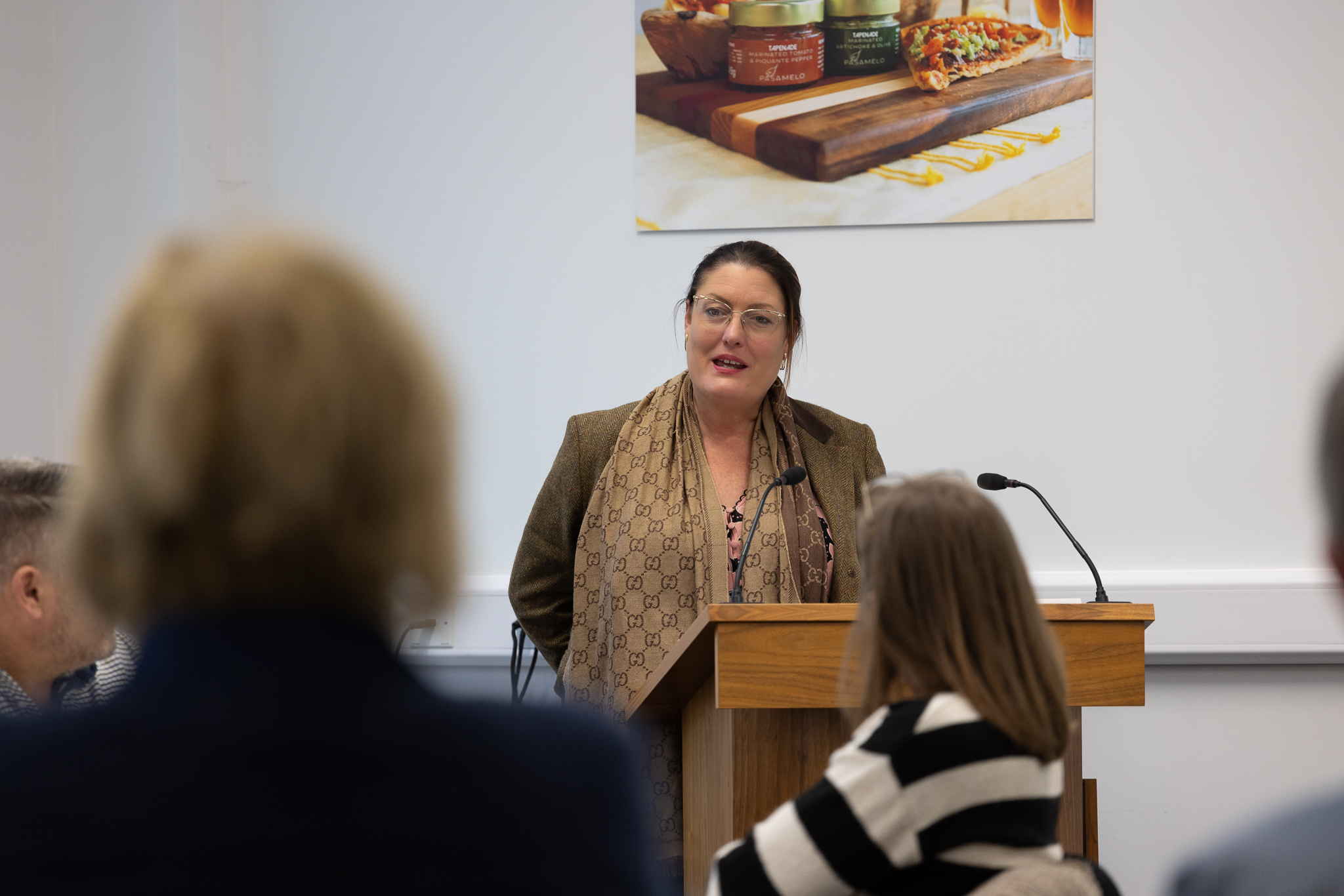 The Chefs’ Forum is immensely proud of this recognition, which not only supports environmental goals for NHS foodservice but also provides a valuable educational experience for NHS chefs and Catering Managers, empowering the next generation to lead on sustainability in healthcare catering.
The Chefs’ Forum is immensely proud of this recognition, which not only supports environmental goals for NHS foodservice but also provides a valuable educational experience for NHS chefs and Catering Managers, empowering the next generation to lead on sustainability in healthcare catering.
Catherine Farinha, Publisher and Project Coordinator, said:
“This has been about creating positive change – bringing together the best minds in catering to create dishes that nourish both patients and the planet. To be recognised by the edie Sustainability Awards is a fantastic honour and testament to everyone’s hard work.”
The Healthcare Chefs’ Knowledge 2: Eating the Rainbow will officially launch on the 14th October at the University of West London.
Chef of the Week: Elliot Plimmer, Executive Chef at The RAF Club in London
How long have you worked at your current restaurant?
I have been at the RAF Club since March 2025.
Where did your passion for cooking come from and where did you learn your skills?
At first when leaving school I wasn’t sure what I wanted to do, I was working part time washing up in a local hotel, I then moved to working on the starter section and enjoyed it and after a while decided to go to a catering college and complete my NVQ 1 & 2.
What do you enjoy most about being a chef?
I enjoy working with a team, working with younger chefs and watching them grow and flourish.
Name three ingredients you couldn’t cook without.
Truffle, butter & green oil.
Which piece of kitchen equipment couldn’t you live without?
Thermomix.
What food trends are you spotting at the moment?
I have noticed a lot of chefs including myself are going back to the French classics, beurre blanc etc.
What do you think is a common mistake that lets chefs down?
Moving through the ranks too quickly, not staying in kitchens long enough to take in and learn everything there is to take in.
What is your favourite time of year for food, and why?
Summer, I love the abundance of vegetables that become available and are at the peak. A beautiful summer vegetable risotto or a lamb canon cooked in butter with asparagus & fresh peas, there is nothing better.
Which of your dishes are you most proud of?
My confit leg & mushroom pie, I have put it on the menu wherever I have worked.
How do you come up with new dishes?
Checking seasonality for me is most important but also, I find it depends on type of business and the clients you are serving.
Who was your greatest influence?
Matthew Marshall, he taught me so much about management and perception, and the importance of it!
Tell us three chefs you admire.
Adam Byatt, I love his commitment to the classics. John Williams, still the best meal I have every had at the Ritz and Matthew Marshall, great leader and taught me so much.
What is your favourite cookbook?
Tom Kerridge – Hand & Flowers cookbook.
Who do you think are the chefs to watch over the next few months?
Alex Payne – after winning a Michelin star at the Tudor Pass, I love watching his journey now at Sorrel in Dorking.
What’s been your favourite new restaurant opening of the last year?
Difficult one for me and I cannot think of a new restaurant, but my favourite restaurant is Smokin Goat in Shoreditch.
